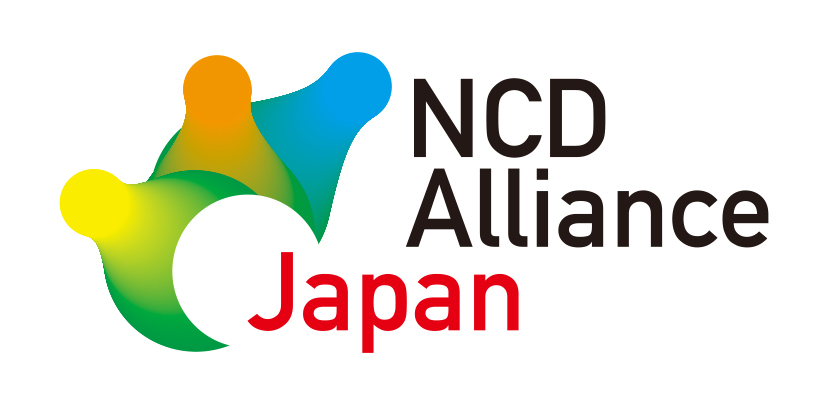Current Activities (July ― September 2023)
CONTENTS
- About Health and Global Policy Institute (HGPI)
- Top Global Health Policy Think Tanks 2020
- NCDs: Non-Communicable Diseases
- AMR: Antimicrobial Resistance
- Global Health
- Planetary Health
- Child Health/Mental Health
- Dementia
- Women’s Health
- Health Information
- Health Policy Academy
- Special Breakfast Meeting
- HGPI Seminar
- Lectures and Media Coverage
- Advocacy Activities to Encourage the Adoption of the Recommendations in Our Policy Proposals
- Providing Professional Expertise
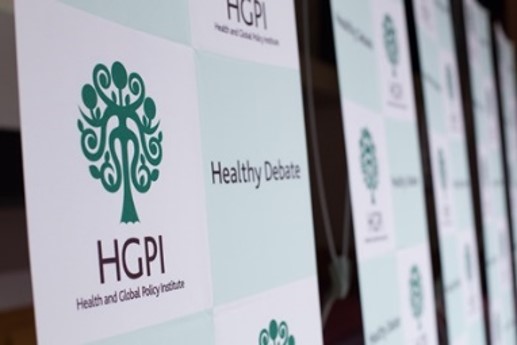
About Health and Global Policy Institute (HGPI)
Non-profit, Independent, and Global
Health and Global Policy Institute (HGPI) is a Tokyo-based independent and non-profit health policy think tank, established in 2004.
Since establishment, HGPI has pursued its mission of “Achieving citizen-centered health policies by bringing broad stakeholders together in its capacity as an independent think-tank to generate policy options for the public.” One of the Institute’s guiding principles in activities for this mission is to hold fast to its independence without adhering to the interests of any political party or organization. HGPI will continue to maintain political neutrality and independence from any organization in conducting its activities.
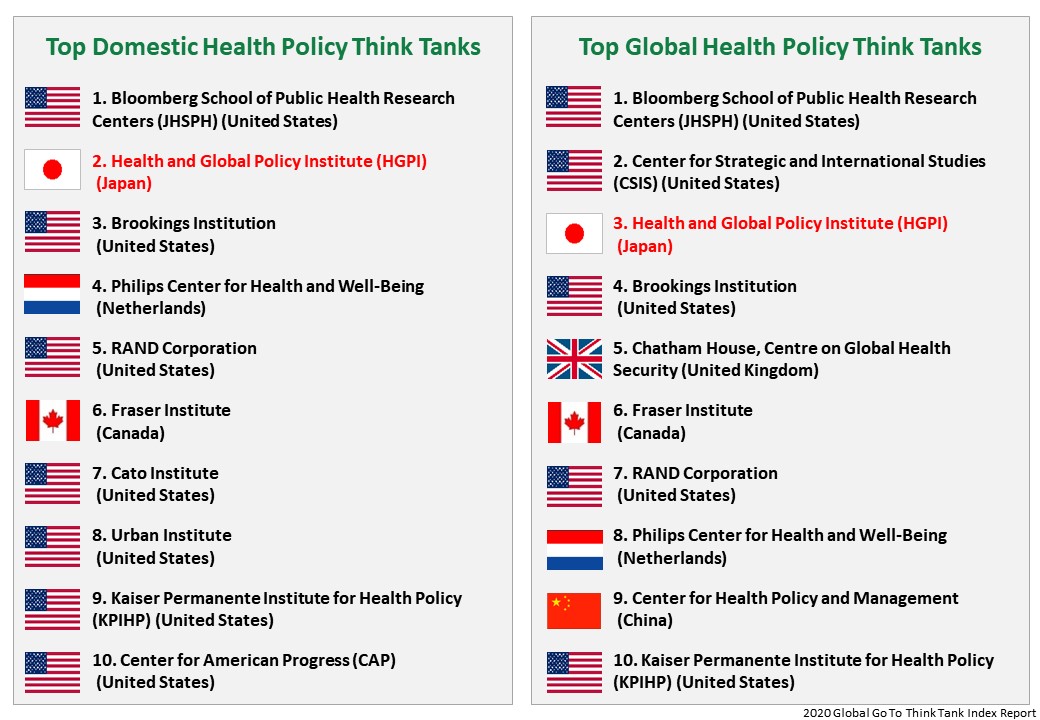
Top Global Health Policy Think Tanks 2020
Ranked Third in the World Among Global Health Policy Think Tanks
HGPI was ranked third among global health policy think tanks worldwide in University of Pennsylvania’s 2020 Global Go To Think Tank Index Report, published in January 2021. HGPI has been included in the ranking for twelve consecutive years, placing it among leading policy organizations.
“HGPI’s ranking is the result of its independence, the diversity of its funding sources, and its commitment to working globally by publishing all of its work in both English and Japanese. Encouraged by these results, we will double our efforts to continue to have a positive impact on society as a think tank specializing in health policy.” –HGPI Chairman Kiyoshi Kurokawa
“Especially during the pandemic, our work to advocate for citizens, patients, and healthcare workers is of the utmost importance. Now, more than ever, the world needs open and fair discussions on health policy. We will continue to foster such discussions, toward the creation of better policy ideas developed out of the combined knowledge of diverse stakeholders from the public and private sectors.” –HGPI CEO and Board Member Ryoji Noritake
NCDs: Non-Communicable Diseases
NCD Alliance Japan
NCD Alliance Japan is a collaborative platform for civil society organizations in the NCD community steered by the Health and Global Policy Institute. Its aim is to further promote comprehensive, cross-cutting NCD policies. Since 2013, NCD Alliance Japan has served as Japan’s point-of-contact for the NCD Alliance, which brings together over 2,000 civil society organizations and academic institutions in more than 170 countries. NCD Alliance Japan was officially recognized as a full member of the NCD Alliance in January 2019.
2023.08.10
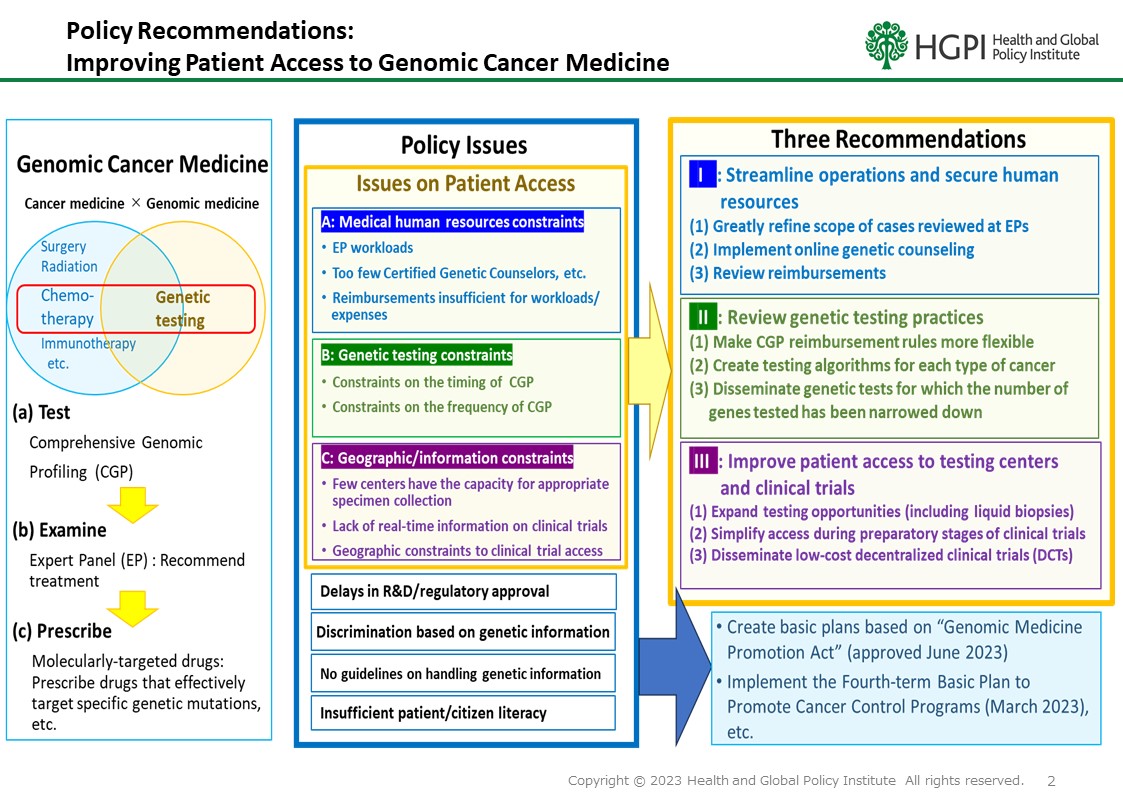
The Project for Considering the Future of Precision Medicine with Industry, Government, Academia, and Civil Society Policy Recommendations
Improving Patient Access to Genomic Cancer Medicine
As for precision cancer medicine, HGPI launched an initiative in FY2021 (“Project for Considering the Future of Precision Medicine with Industry, Government, Academia, and Civil Society”), and has made expert hearings and conducted surveys to examine the issue. Based on our findings, we offered comprehensive policy recommendations in September 2022. For the second phase of this project, we compiled this policy recommendation paper, based on additional, expansive surveys and hearings with our focus on measures for better patient access to Genomic Cancer Medicine.
Executive summary
- Genomic Cancer Medicine was viewed as an advanced form of medical treatment when Comprehensive Genomic Profiling (CGP; or cancer gene panel tests) was granted health insurance coverage in 2019. Since then, people serving in clinical settings have accumulated experience handling this form of treatment. We are now at a stage to make Genomic Cancer Medicine a form of technology from which anyone should be able to benefit. To achieve this, we should improve patient access to deliver Genomic Cancer Medicine more broadly to the public.
- From the perspective of patient access opportunities, policy challenges with respect to delivering Genomic Cancer Medicine may be sorted into three categories:
A: Constraints related to human resources in medicine
B: Constraints related to genetic testing
C: Constraints related to geographic factors or information
We must take wherever possible actions to address each issue one by one, and expand opportunities for patients to access Genomic Cancer Medicine.
- Based on these understandings, HGPI offers the following recommendations:
RECOMMENDATION I: Streamline operations and secure human resources
In view of the further spread of genomic cancer medicine, streamline operations thoroughly, and adopt systems to secure human resources commensurate with workloads.
RECOMMENDATION II: Review genetic testing practices including how tests are performed
Based on the accumulated clinical experiences, revise the genetic tests and related practices to meet the needs of those serving in clinical settings, and to suit the characteristics of each type of cancer.
RECOMMENDATION III: Improve patient access to testing centers and clinical trials
While paying attention to the constraints and disparities related to geographic factors/information, make drastic improvements to patient access to testing centers and clinical trials.
2023.09.07
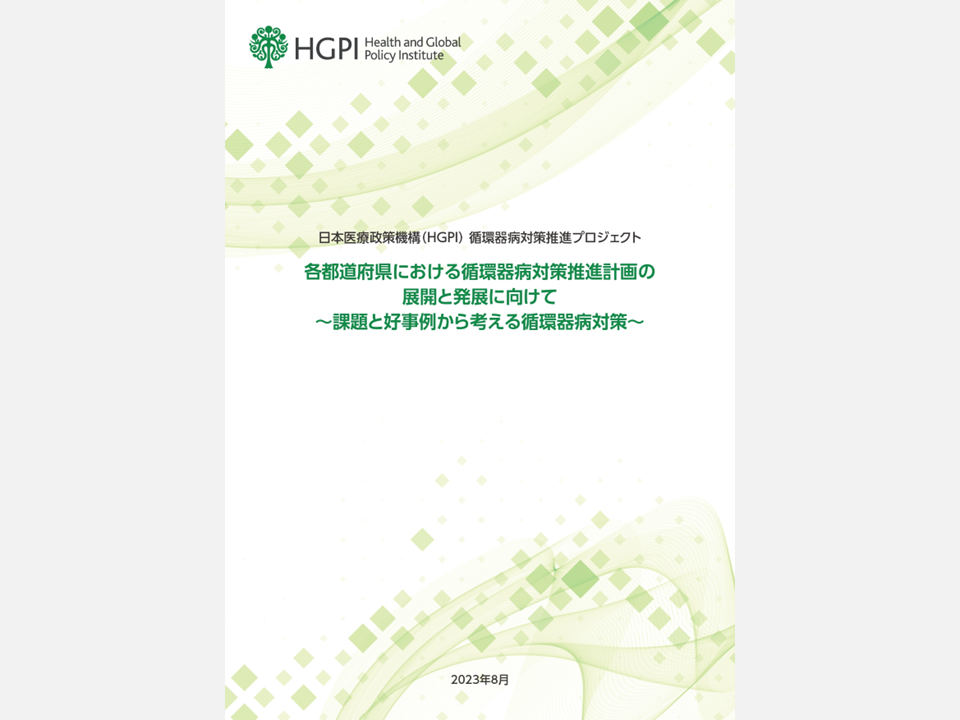
The Cardiovascular Disease (CVD) Control Promotion Project Recommendations
Developing and Expanding Cardiovascular Disease Control Plans in Each Prefecture – Challenges and Good Examples for Cardiovascular Disease Control
HGPI’s Cardiovascular Disease Control Promotion Project compiles good examples and issues from three perspectives on initiatives in each prefecture, namely: (1) formulating plans tailored to actual conditions in each prefecture and evaluating them; (2) building an integrated support system centered on “Model Projects for Integrated Centers for Stroke and Heart Disease Support;” and (3) promoting Patient and Public Involvement (PPI) in the processes for formulating and implementing CVD countermeasures. It also crystallizes common points and discusses necessary future initiatives for each perspective.
Good examples and key points for future discussion identified during Phase 2 of the Cardiovascular Disease Promotion Project
1: Formulating plans tailored to actual conditions in each prefecture and plan evaluation
- Securing human resources, establishing management positions, and building systems for cross-departmental collaboration at prefectural governments
- Building systems for collaboration with external stakeholders
- Planning methodologies
2: Building an integrated support system centered on “Model Projects for Integrated Centers for Stroke and Heart Disease Support” (hereinafter “integrated support center projects”)
- Clarifying the functions of integrated support center projects
- Promoting collaboration among government, civil society, academia, and medicine
- Building systems for continuous operations
- Fostering mutual collaboration among major hospitals
3: Promoting Patient and Public Involvement (PPI) in the processes for formulating and implementing CVD countermeasures
- Identifying people living with CVDs and other affected parties and encouraging their involvement
- Providing support and consideration to facilitate participation in discussion forums
- Securing diverse methods of involvement and opinion gathering
AMR: Antimicrobial Resistance
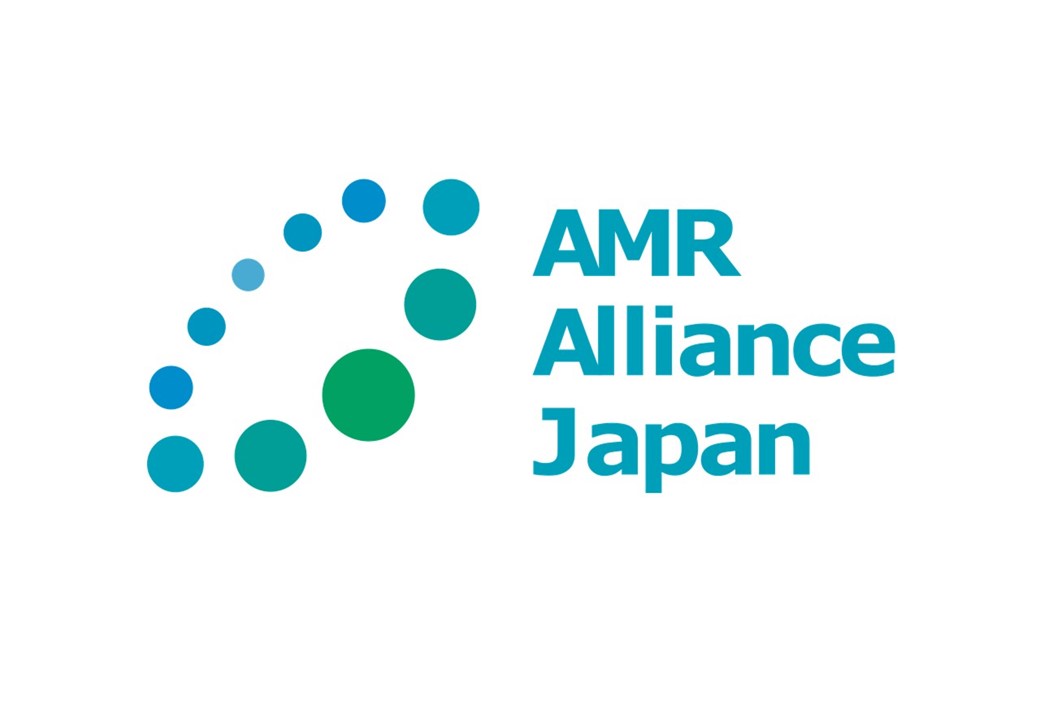
AMR Alliance Japan
Established in November 2018 by academic societies working in infectious disease medicine, pharmaceutical companies, and medical device makers, AMR Alliance Japan is an independent platform for the promotion of multisector discussion on AMR countermeasures. The Alliance develops and disseminates policy recommendations to: (1) ensure that AMR countermeasures are in line with the current situation of patients and healthcare settings; (2) promote the national and international AMR agenda; and (3) advance Japan’s AMR policy.
2023.08.01
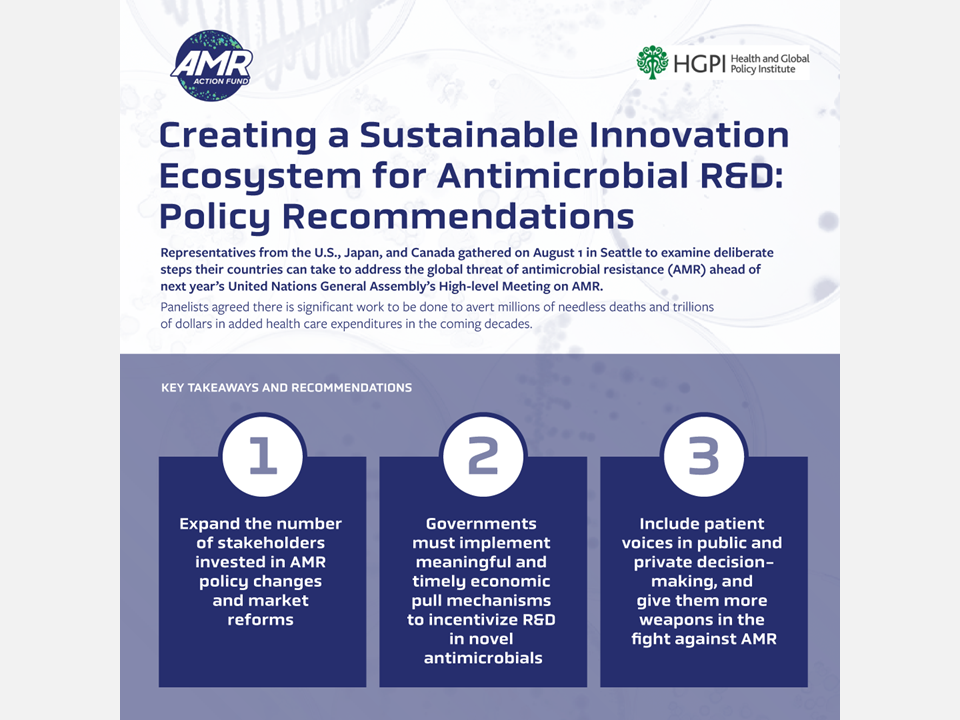
Recommendations
Recommendations for Creating a Sustainable Innovation Ecosystem for Antimicrobial R&D
Ahead of next year’s United Nations General Assembly’s High-level Meeting on AMR, representatives from the U.S., Japan, and Canada gathered to explore critical steps that governments and stakeholders can take to help ensure the world has access to the effective antimicrobials and other therapies needed to avert millions of needless deaths and trillions of dollars in added health care expenditures in the future.
2023.09.03
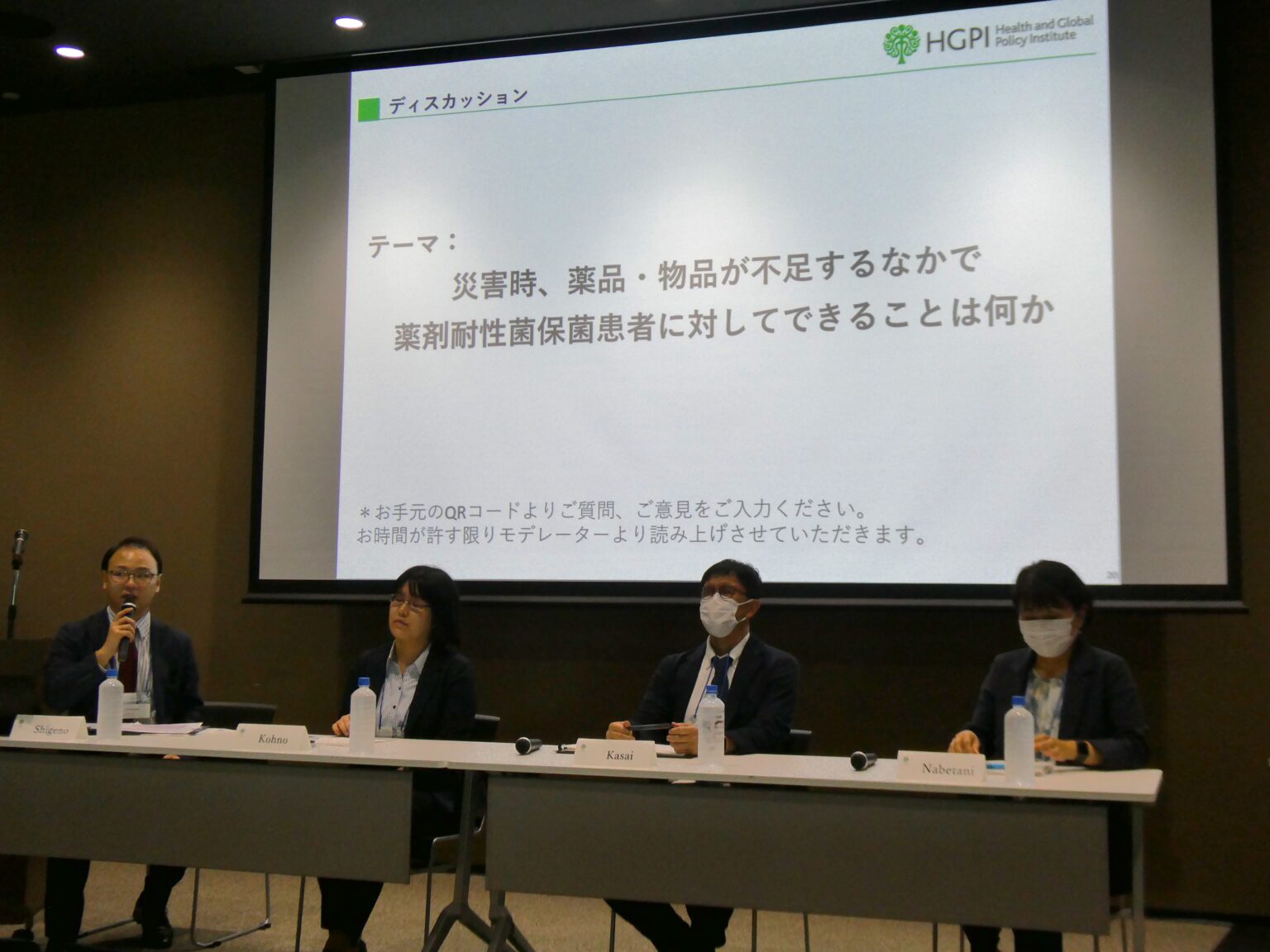
The 25th Annual Conference of the Japan Society of Disaster Nursing, Workshop I
Considering Disasters and Antimicrobial Resistance (AMR)
Workshop I was held to examine AMR control from the perspectives of disaster measures and crisis management. Together with our fellow participants, who serve in the field of disaster nursing and possess a vast amount of experience in crisis response for COVID-19 and major disasters, we identified current issues and examined future countermeasures for AMR, an area in which outbreaks can occur and expand unnoticed.
2023.09.13
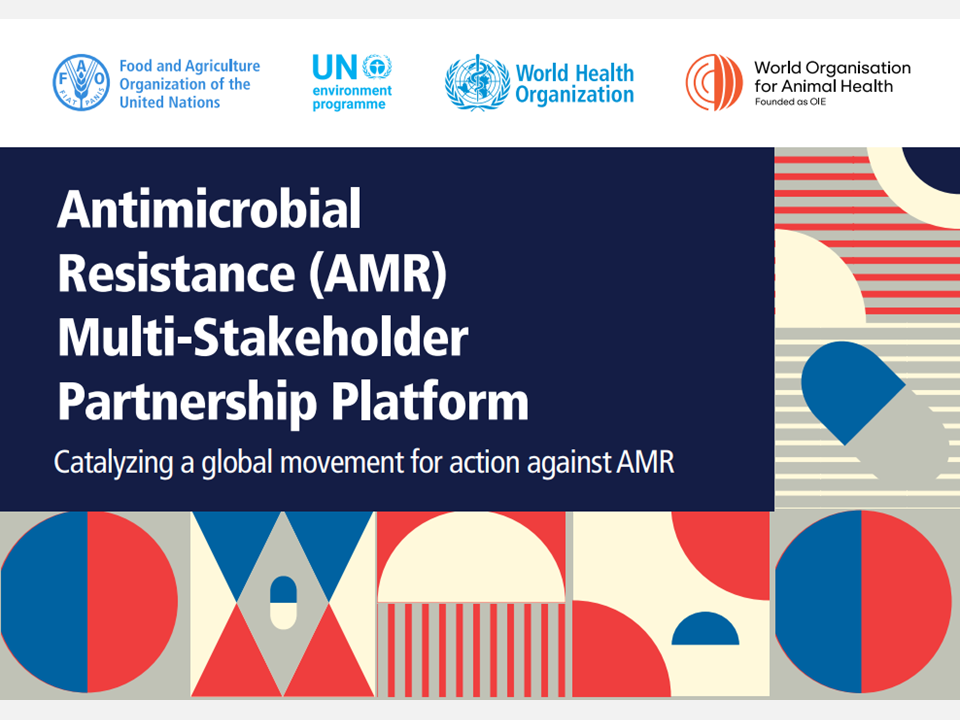
Join the Network
AMR Multi-Stakeholder Partnership Platform
HGPI officially joined the (AMR) Multi-Stakeholder Partnership Platform. The platform established by the Food and Agriculture Organization of the United Nations (FAO), the United Nations Environment Programme (UNEP), the World Health Organization (WHO), and the World Organisation for Animal Health (WOAH), aims to address the growing global threat of antimicrobial resistance (AMR) by mobilizing an international multisectoral partnership network.
Global Health
2023.09.12
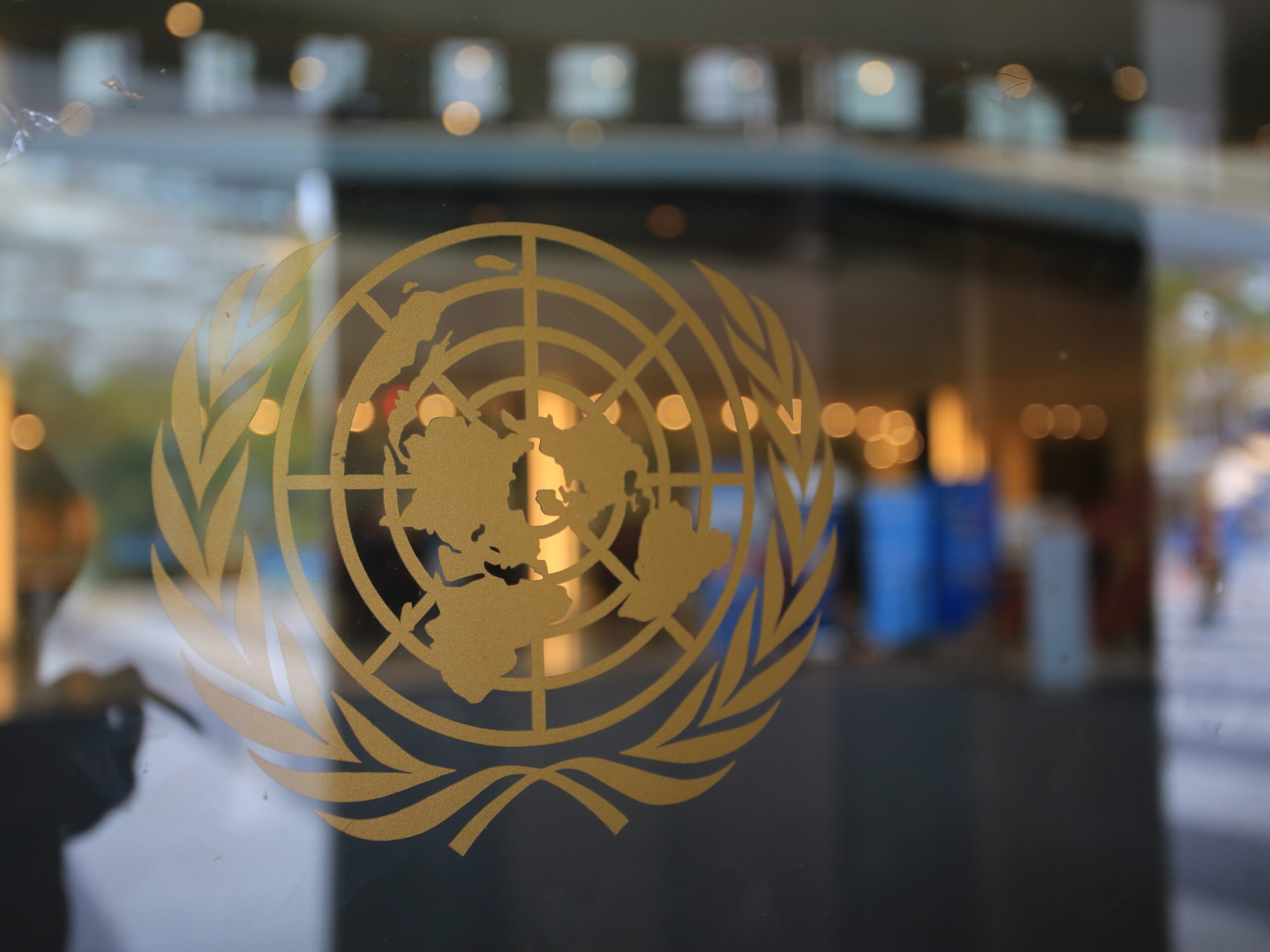
Sign
Open Letter Calling for Action at UN High-Level Meeting on Pandemic Prevention, Preparedness and Response
Pandemic Action Network and partners, including HGPI have set out an ambitious and targeted action agenda aligned with the priorities in the letter signed on May 4 by more than 160 organizations. We are calling on world leaders to make commitments at this year’s UN General Assembly, including the UN High-Level Meeting on Pandemic Prevention, Preparedness and Response (Pandemic PPR) that will take place on September 20.
Planetary Health
 Advisory Board Meeting in FY2023
Advisory Board Meeting in FY2023
Planetary Health: Necessary Steps for a Sustainable Environment
Aiming to advance discussions on planetary health and to contribute to better health for the Earth and its people, HGPI formed an advisory board and launched its Planetary Health Project in FY2022. Together with our newest advisory board members who joined in FY2023, opinion leaders and relevant parties in the field of planetary health from industry, government, academia, and civil society will share best practices and ideas from each stakeholder group, identify issues, and recommend solutions.
Advisory board members (titles omitted; in Japanese syllabary order)
Satoru Arima (DAIICHI SANKYO HEALTHCARE CO., LTD.)
Saori Kashima (Director, Center for the Planetary Health and Innovation Science (PHIS), Associate Professor of Environmental Health Sciences Laboratory, Graduate School of Advanced Science and Engineering, Hiroshima University)
Masahiro Kaminota (Director-General, Environmental Health Department, Minister’s Secretariat, Ministry of the Environment)
Taiko Kudo (Chief Engineer, Environment and Energy Division, Japan Weather Association)
Naoki Kondo (Professor and Chair, Department of Social Epidemiology, Graduate School of Medicine and School of Public Health, Kyoto University)
So Sugawara (Representative Director, Green innovation)
Yasuhiko Suzuki (Director, International Joint Research Institute for Zoonosis Control, Hokkaido University; Distinguished Professor, Hokkaido University)
Yukari Nakano (Executive Officer, Japanese Nursing Association)
Keiko Nakamura (Professor, Department of Global Health Entrepreneurship, Graduate School of Medical and Dental Sciences (Medicine), Tokyo Medical and Dental University)
Keisuke Nansai (Head, Material Cycles Division of National Institute for Environmental Studies (NIES))
Masahiro Hashizume (Professor, Department of Global Health Policy, Graduate School of Medicine, The University of Tokyo)
Makoto Haraguchi (Fellow, MS&AD InterRisk Research & Consulting, Inc. / TNFD dedicated SVP, MS&AD Insurance Group Holdings, Inc.)
Eiji Hinoshita (Assistant Minister for Global Health and Welfare, Ministry of Health, Labour and Welfare)
Kenji Fuma (Specially Appointed Professor, Co-Creative Organization for Green Society, Shinshu University / CEO, Neural, Inc.)
Hidekazu Hosokawa (Executive Director, Japan Medical Association)
Yusuke Matsuo (Director, Business Task Force, Institute for Global Environmental Strategies)
Yutaka Mitsutake (Director, Japan Sustainability, AstraZeneca K.K.)
Ryohei Yamagata (Sustainability Manager, Medical Policy and External Affairs Division, Novo Nordisk Pharma K.K.)
Hiroya Yamano (Director, Biodiversity Division, National Institute for Environmental Studies)
Naoko Yamamoto (Professor, International University of Health and Welfare / Director, Global Medical Cooperation Center)
Chiho Watanabe (Dean, Interfaculty Initiative in Planetary Health; Professor, School of Tropical Medicine and Global Health, Nagasaki University)
Japan Association for Global Health, Students Section (jagh-s)
Asian Medical Students’ Association Japan (AMSA Japan)
2023.07.24
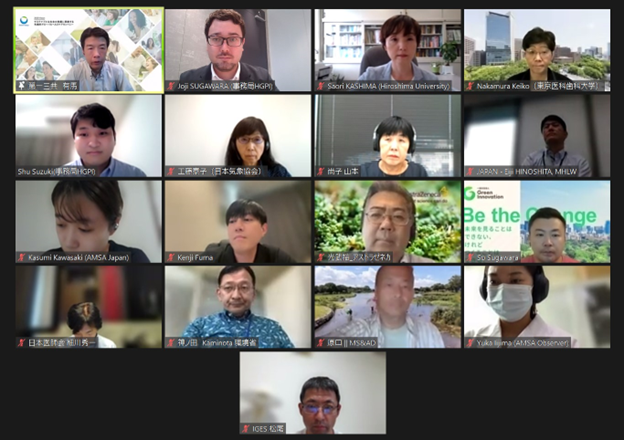
The First Advisory Board Meeting
We shared information regarding how the project secretariat will be organized and held a discussion in which each participant shared challenges they have in mind, items for the agenda, and objectives to set.
2023.08.30
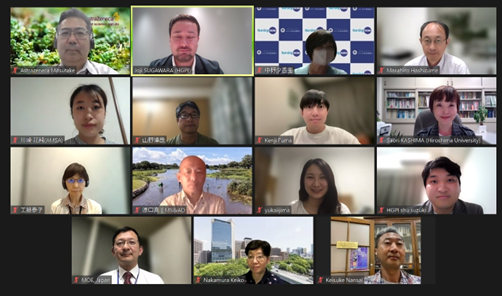
The Second Advisory Board Meeting
Three designated advisory board members provided presentation with insights regarding their awareness of issues and initiatives. after which the secretariat shared with the entire group future initiatives for the project and the agenda items from the first meeting. Following this, comprehensive discussions were held regarding the individual presentations and the agenda items.
2023.09.08
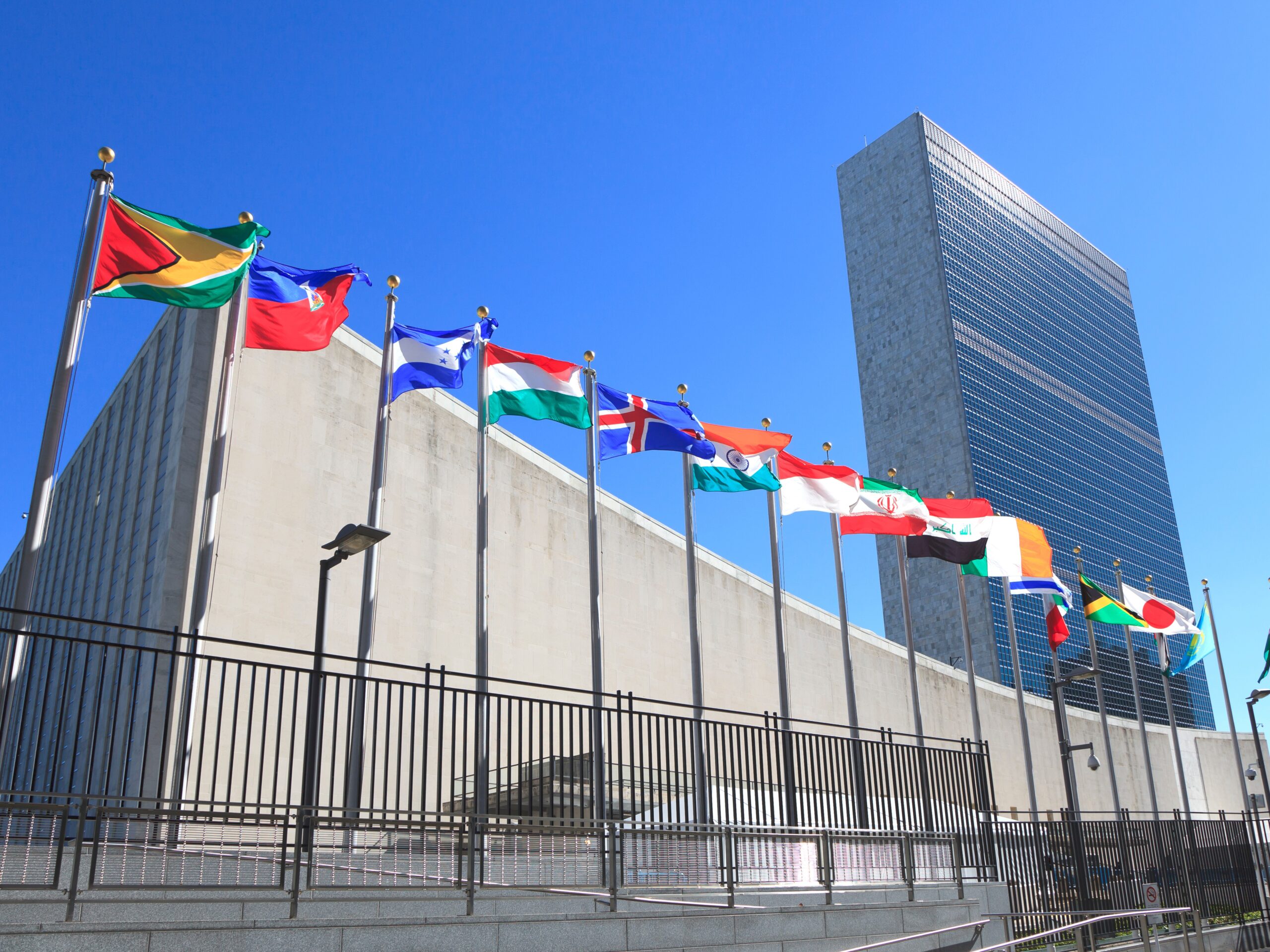
Policy Recommendations
Expectations for the 2023 UHC Political Declaration from a Planetary Health Perspective
HGPI has proposed amendments to the six paragraphs of the 2023 Draft Political Declaration on UHC including the addition of a planetary perspective to the focus on human health and the inclusion of conditions such as climate and environment in the description of health risk factors.
Join
2023.07.19
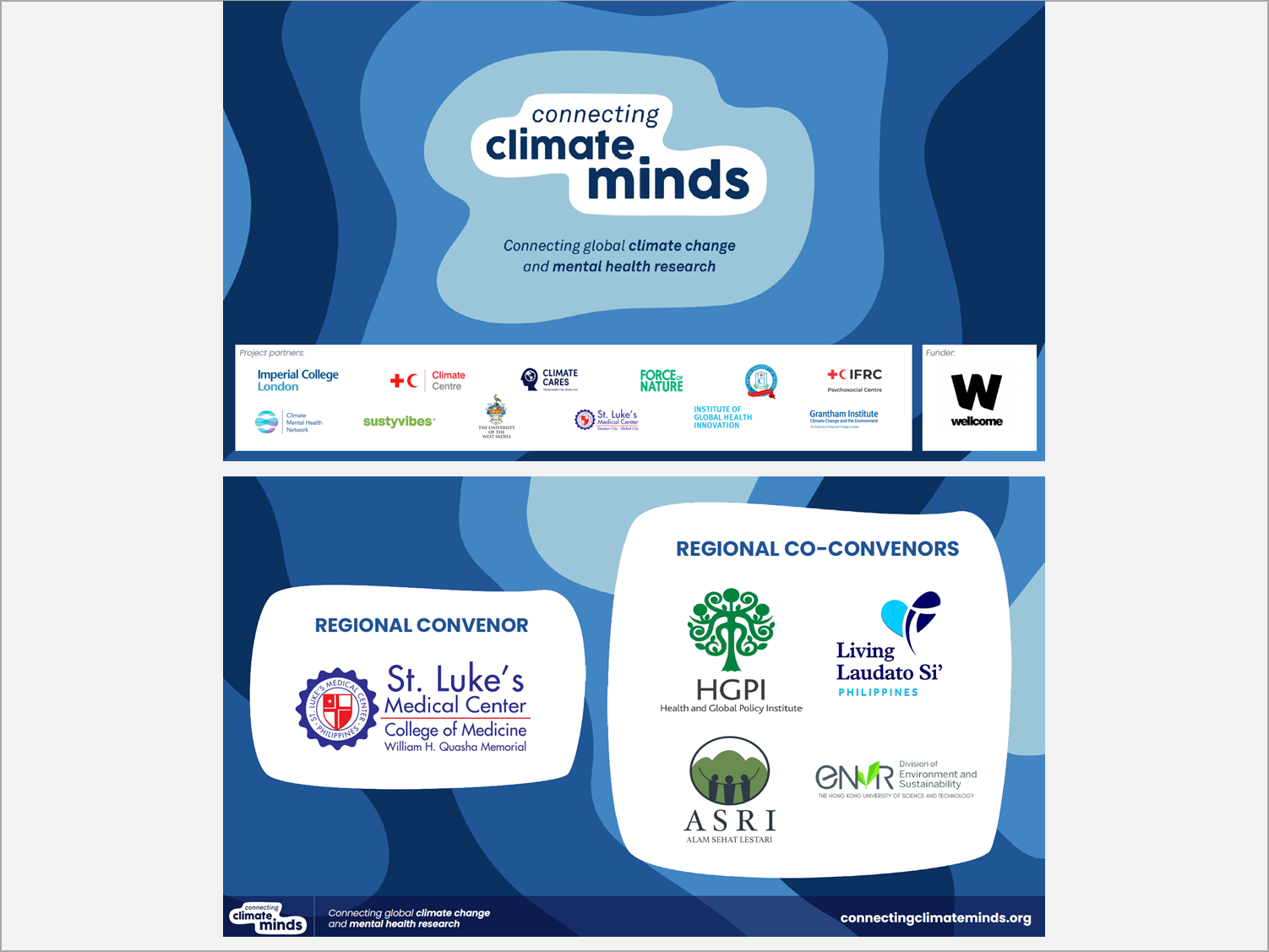
A Global initiative “Connecting Climate Minds”
HGPI has joined Connecting Climate Minds, a global initiative funded by Wellcome Trust, that brings together expertise across research, policy, design, and lived experience from across the globe.
2023.08.23
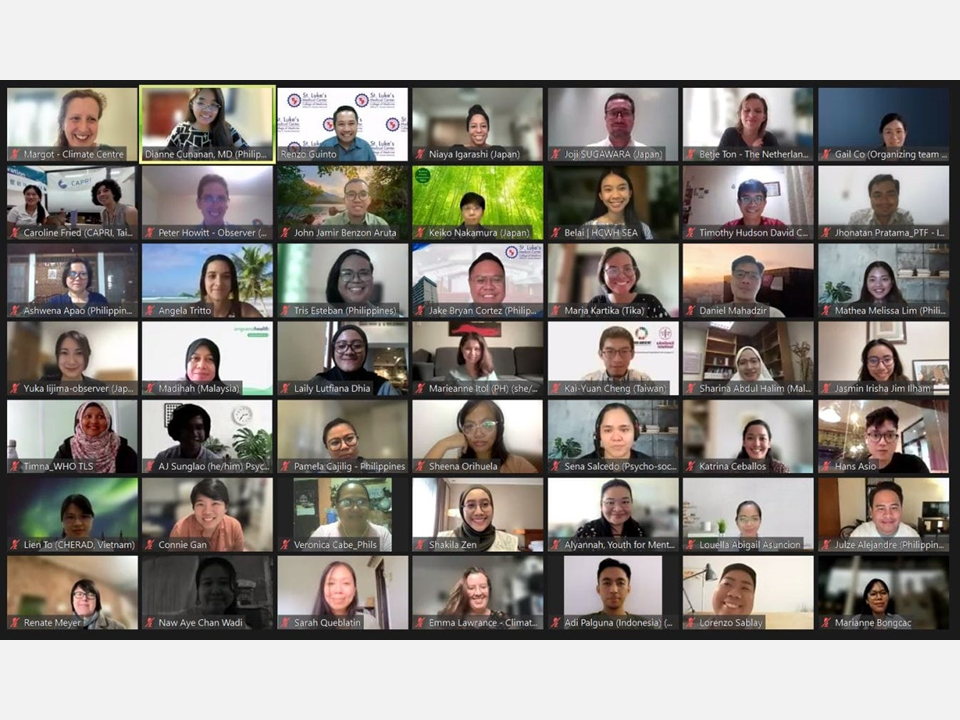
The Kick-off Dialogue Session of Connecting Climate Minds
Mr. Joji Sugawara, Vice President and Ms. Niaya Harper Igarashi, Program Specialist at HGPI participated as a regional co-convenor in the first dialogue of Connecting Climate Minds for East and Southeast Asia region as a facilitator of the group discussion.
2023.07.03
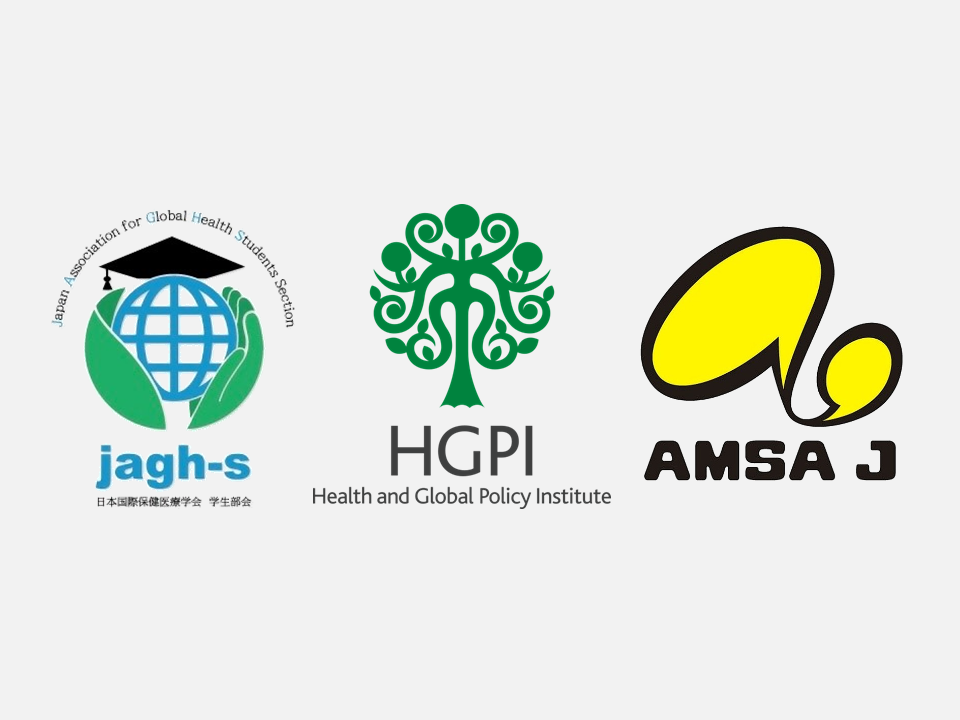
The Asian Medical Students’ Association Japan (AMSA Japan)
The Japan Association for Global Health, Students Section (jagh-s)
Youth Organizations have announced their participation in the Planetary Health Project at HGPI.
2023.08.01
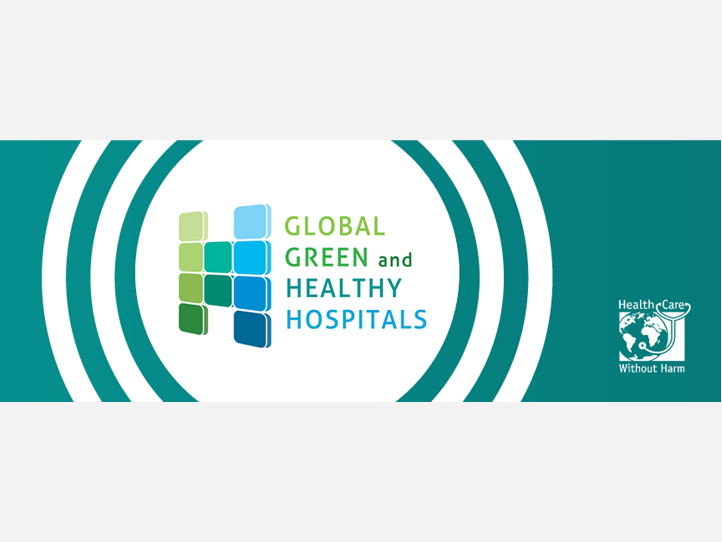
Global Green and Healthy Hospitals (GGHH)
HGPI officially joined Global Green and Healthy Hospitals (GGHH). The Global Green and Healthy Hospitals network has over 1,750 members in more than 80 countries who are using innovation, ingenuity, and investment to transform the health sector and foster a healthy, sustainable future.
Sign
2023.09.04
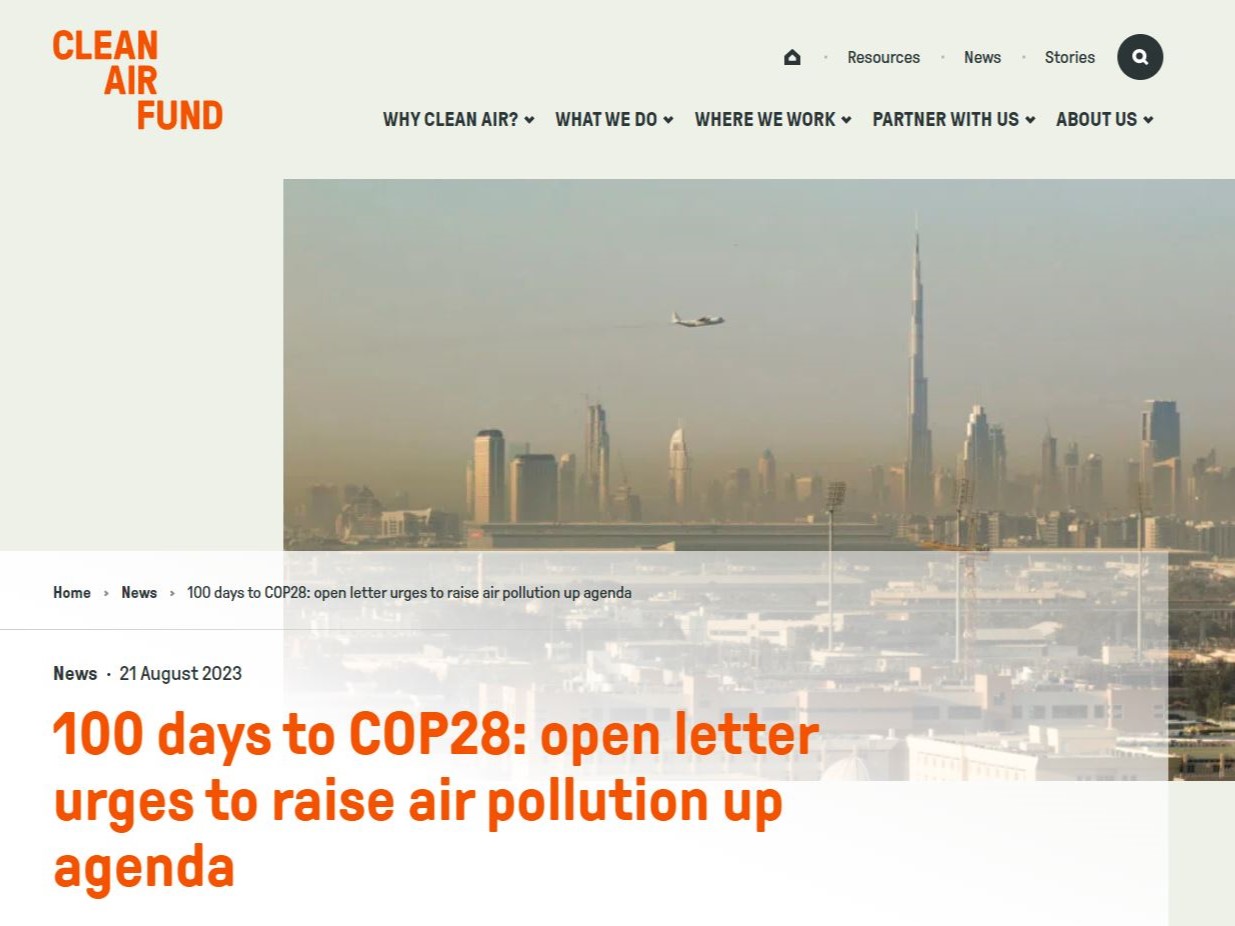
100 days to COP28: Open letter urges to raise air pollution up agenda
HGPI, along with more than 70 NGOs, civil society organizations and health professionals, call on the COP28 President to take steps to reduce air pollution and deliver win-wins for climate, public health, and economies.
2023.09.19

Net Zero Declaration in Healthcare
The petition campaign, which started on August 22, 2023, calls for a “Net Zero Declaration in Healthcare: To protect lives from heatstroke and heavy rainfall disasters caused by the climate crisis, the Japanese government should declare net zero greenhouse gas emissions in the healthcare sector by 2050.”
Child Health/Mental Health
2023.08.10
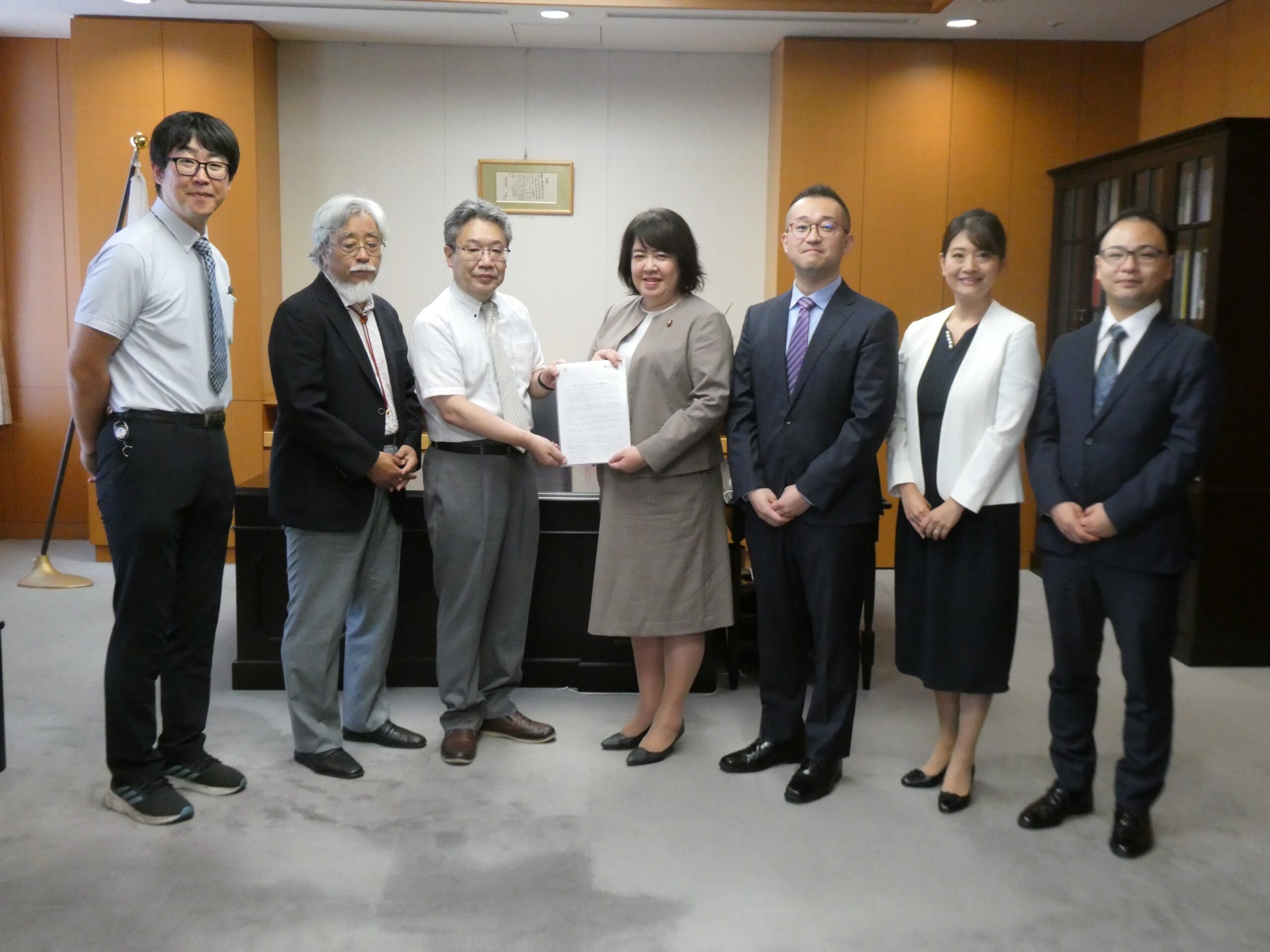
Policy Recommendations
Steps for Implementing Children’s Stress Management in Society
The HGPI Children’s Health Project team, the HGPI Mental Health Policy Project team, and the Japan Society of Stress Management submitted joint policy recommendations titled “Steps for Implementing Children’s Stress Management in Society” to Ms. Takae Ito, Parliamentary Vice-Minister of Education, Culture, Sports, Science and Technology.
(1) We request a revision be made to the Courses of Study to secure at least six hours per year for each grade from the first year of elementary school to the third year of high school so children can learn practical methods of stress management. Furthermore, we request that notices and other announcements be issued before the next revision of the Courses of Study so stress management education can be implemented within existing frameworks such as those for integrated studies and special activities.
(2) We request the creation of a system that teaches children concrete methods of addressing stress and that enables early detection of mental distress using tablets and other terminals in a similar manner to the Stress Check System used for adults.
(3) As providing stress management education during periods of non-emergency will also be effective for preparing people for disasters, accidents, and other periods of distress and help to prevent sexual violence (“Safety Education for Life”), please set aside time specifically for stress management education within curricula.
(4) Please conduct a nationwide survey on the implementation status of stress management education in schools, gather best practices, and proactively publicize those best practices to serve as points of reference for schools that will introduce stress management education in the future.
Dementia
2023.09.08
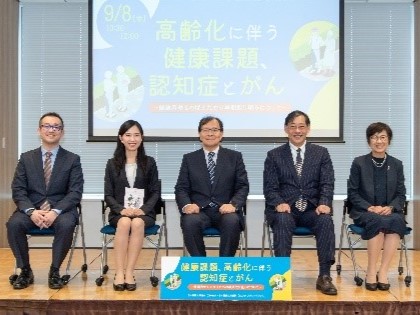
HGPI and the Japan Pharmaceutical Manufacturers Association’s Aging Group Joint Symposium
Health Challenges that Accompany Population Aging – Dementia and Cancer
Considering what is needed for Japan to mature as a society that supports health and longevity, a symposium was held on the themes of dementia and cancer, which are considered to be common among the elderly. Through keynote speeches and panel discussions, the event aimed to provide an opportunity to raise awareness and prepare for extending healthy life expectancy in Japan.
Participants (titles omitted)
Sachiko Nakagawa (Managing Director, JPMA)
Takeshi Iwatsubo (Professor of neuropathology, The University of Tokyo Graduate School of Medicine/Director, National Institute of Neuroscience, National Center of Neurology and Psychiatry)
Hitoshi Nakagama (President, National Cancer Center Japan)
Matsuyo Kamada (Representative Director, Alzheimer’s Association Japan)
Rin Ogiya (Senior Officer for Cancer Control, Cancer and Disease Control Division, Health Service Bureau, Ministry of Health, Labour and Welfare)
Women’s Health
2023.09.15
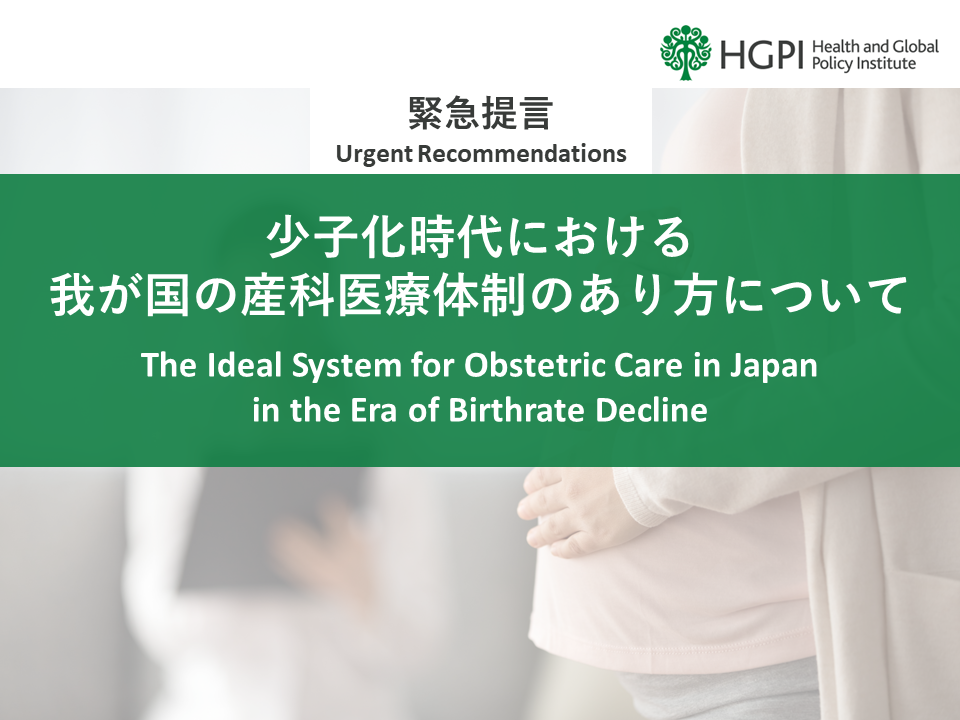
Urgent Recommendations
The Ideal System for Obstetric Care in Japan in the Era of Birthrate Decline
HGPI has presented an urgent recommendation regarding the ideal system for obstetric care in Japan in the era of the birthrate redline. With the declining birth rate becoming an urgent issue, the government has adopted a diverse range of countermeasures to the declining birth rate, and discussions are underway toward the future insurance coverage of childbirth expenses. On the other hand, the business environment surrounding obstetric care institutions is becoming harsher due to a decrease in the number of births and higher prices. Against this backdrop, HGPI has released an urgent recommendation on what is needed to maintain a safe environment for pregnancy and childbirth in this era of declining birthrates.
- The government should clarify the future structure of Japan’s obstetric care system and present a vision.
- When insurance coverage is granted to childbirth, adequate points must be assigned to it in the medical service fee schedule. When revising reimbursements, ensure that the natural increase in the cost of childbirth is reflected.
- Provide suitable reimbursements for and review medical practices related to perinatal care.
- Cooperate with local governments and related parties to design frameworks that will not require copayments from expectant mothers.
- Determine how to best provide painless delivery.
Health Information
2023.07.21
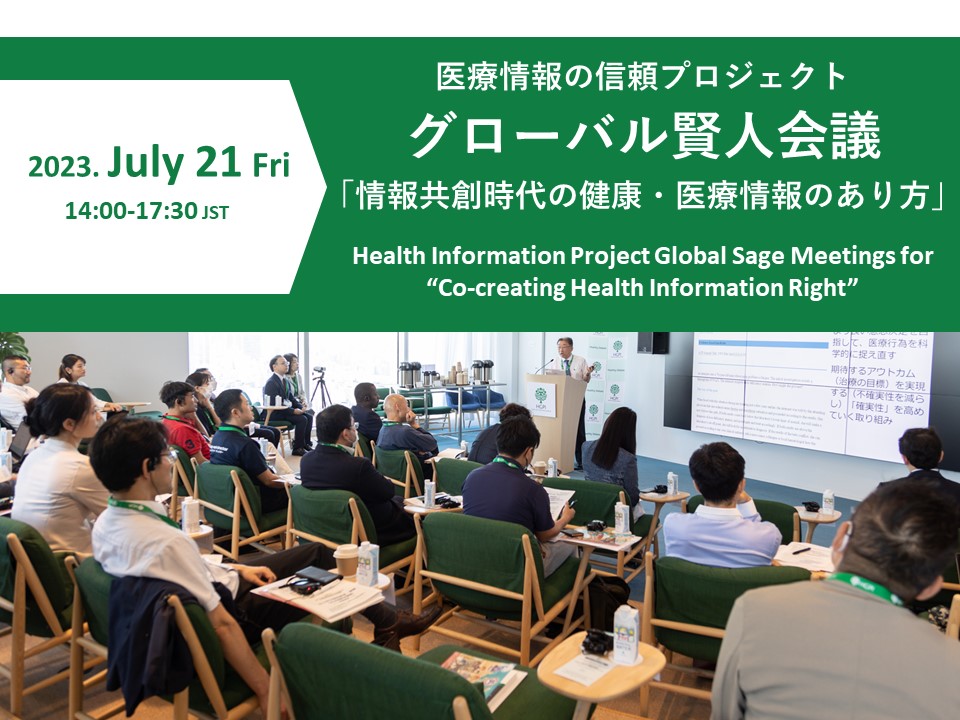
The 1st Global Sage Meetings
Co-creating Health Information Right
In the current era of advancing digitalization, when information regarding health and medicine is intertwined, we hosted a multi-disciplinary discussion that was rich in historical and cultural perspectives that examined the nature of accurate and reliable health information together with health sector representatives, patients and patient advocacy leaders, and experts in fields like history, philosophy, anthropology, and religion. Centered around the theme of “health information,” we exchanged broad views on the nature of health information that is needed today and will be needed in the near future, as well as on how to best prepare people for comprehending that information.
Health Policy Academy
HGPI held the first lecture of the 12th session of Health Policy Academy (HPA).
2023.08.10
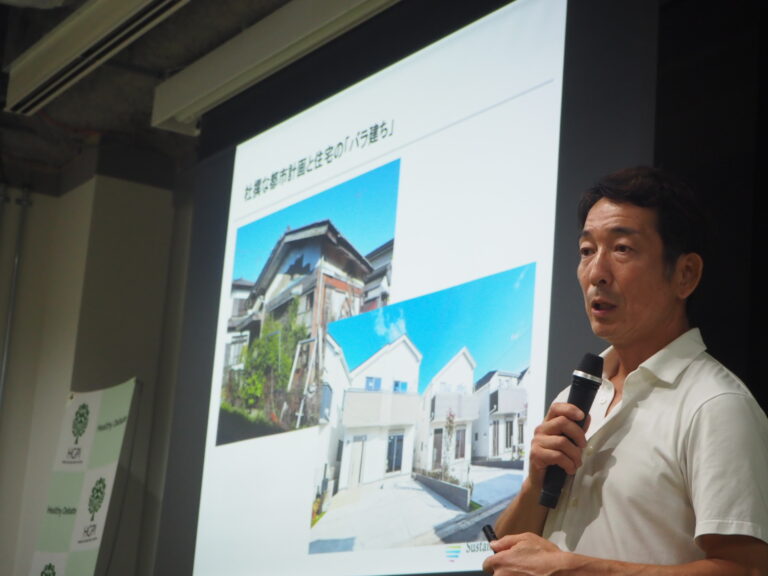
Lecture 1
Introduction and View of Public Policy
Kohei Onozaki, HGPI Board Member, provided a comprehensive overview of frameworks for health policy and public health and introduced current topics such as countermeasures against the COVID-19 pandemic and preventive healthcare.
In the second half of the first lecture, Shunichiro Kurita, HGPI Senior Manager, gave a lecture on the theme of “Fundamentals of Public Policy” and focused on topics such as the formation of public issues and steps in the policy process.
2023.09.14
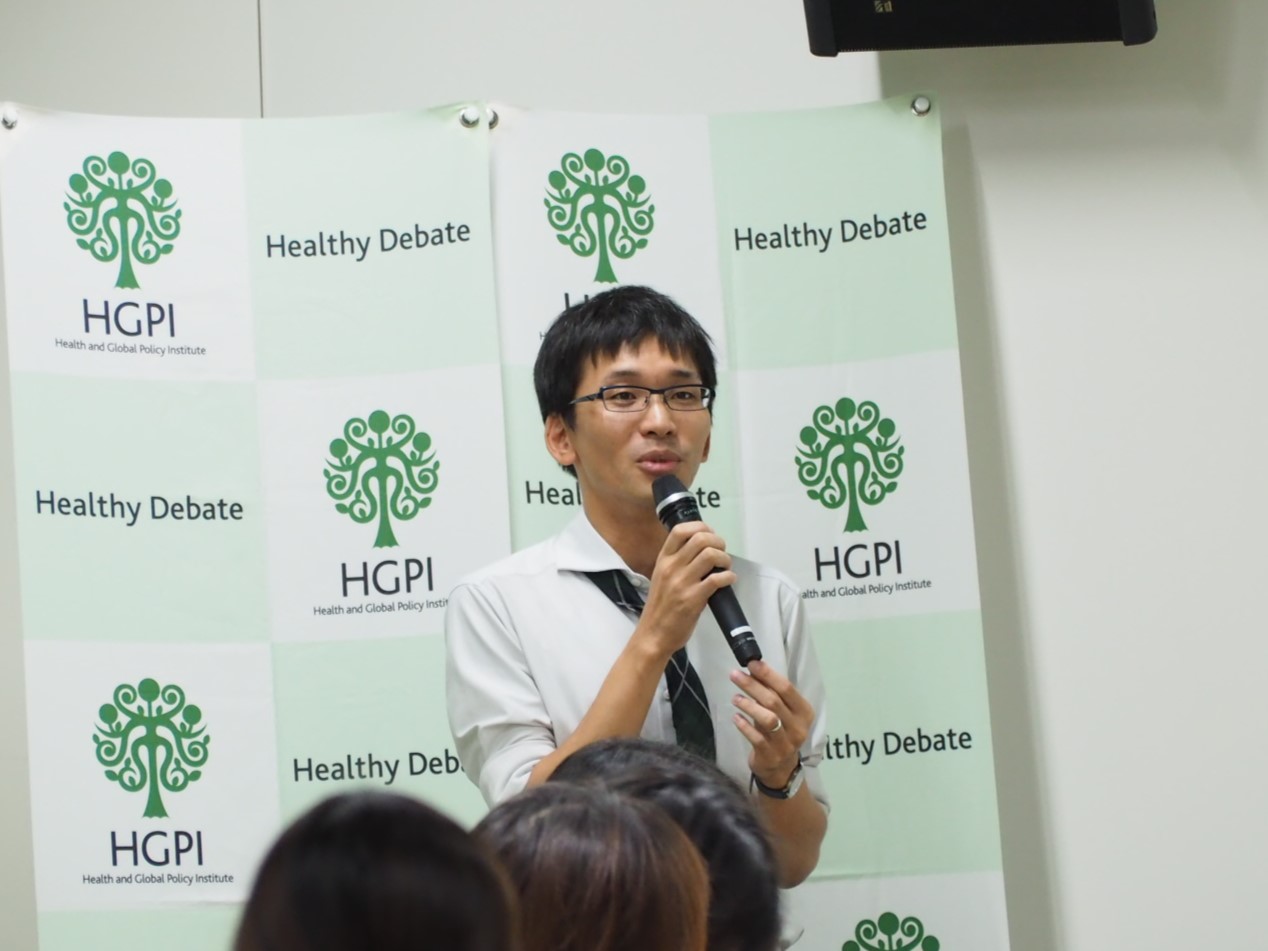
Lecture 2
Health Policy and Ethics
Shintaro Tamate (Professor, Faculty of Law Department of Political Studies, Gakushuin University) provided a lecture entitled “Health Policy and Ethics”. The lecture focused on the connection between health policy and ethics and the ethical examination of health policy.
2023.09.28
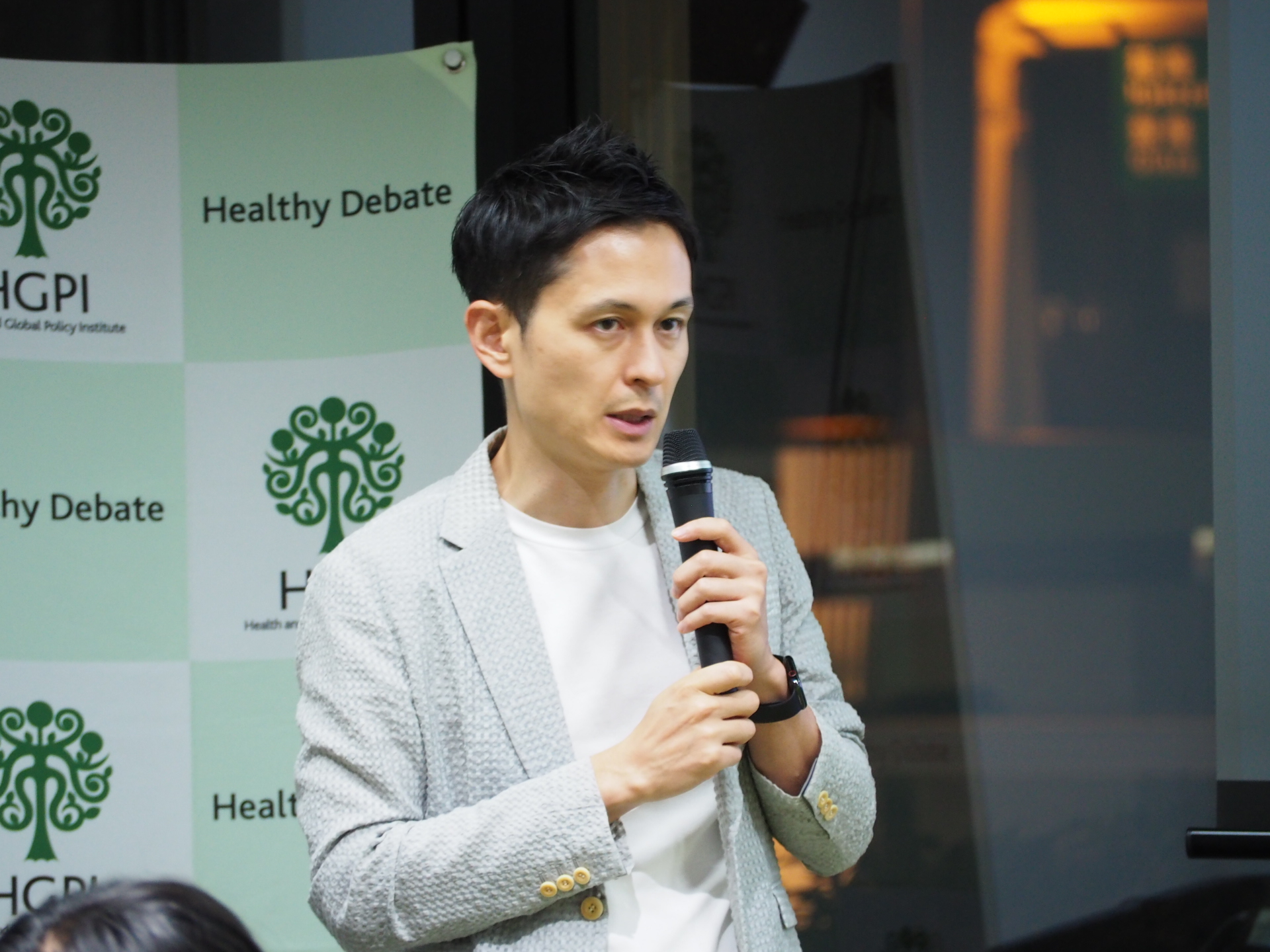
Special Seminar
Health and Digital Technology
Seigo Hara (Representative Chief Executive Officer, MICIN, inc., HGPI Fellows) provided the lecture focused on the changing of telemedicine system around Covid-19 pandemic and issues of Software as a Medical Device (SaMD) system in Japan.
Special Breakfast Meeting
2023.09.11
The 51st Special Breakfast Meeting
COVID-19 Pandemic Response and the Future of Japanese Healthcare
We had the honor of hosting Dr. Masami Sakoi, Chief Medical and Global Health Officer, Ministry of Health, Labour and Welfare. Dr. Sakoi discussed the impact of COVID-19 on the healthcare system and the social security system, particularly the impact of COVID-19 on healthcare in Japan, based on his long experience in key positions in the Ministry of Health, Labour and Welfare administration, as well as his thoughts on the prospects and the future of Japan from a broad perspective. He also discussed these perspectives with everyone in attendance.
HGPI Seminar
2023.08.01
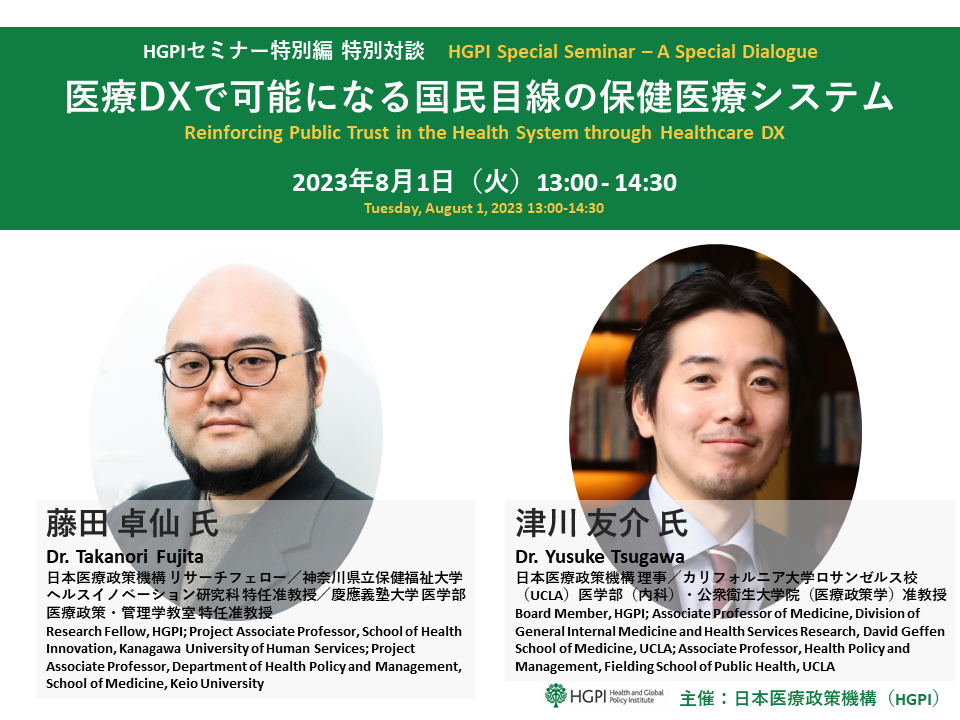
HGPI Special Seminar – A Special Dialogue
Reinforcing Public Trust in the Health System through Healthcare DX
This Seminar was held using a conversational format and feature Professor Takanori Fujita and Professor Yusuke Tsugawa. In addition to serving as Research Fellow at HGPI, Project Associate Professor Fujita serves as Department of Health Policy and Management, School of Medicine, Keio University. Professor Tsugawa serves as a Board Member at HGPI, as Associate Professor of Medicine at the Division of General Internal Medicine and Health Services Research at UCLA David Geffen School of Medicine, and as Associate Professor of Health Policy and Management at UCLA Fielding School of Public Health. We deepened discussions on how items such as privacy, individual human rights, the interests of data collection agencies, and public interest or the needs of society as a whole relate to discussions on healthcare DX as well as examine conversations that must be held and issues that must be overcome to build a sustainable, trustworthy health system in the future.
2023.09.06
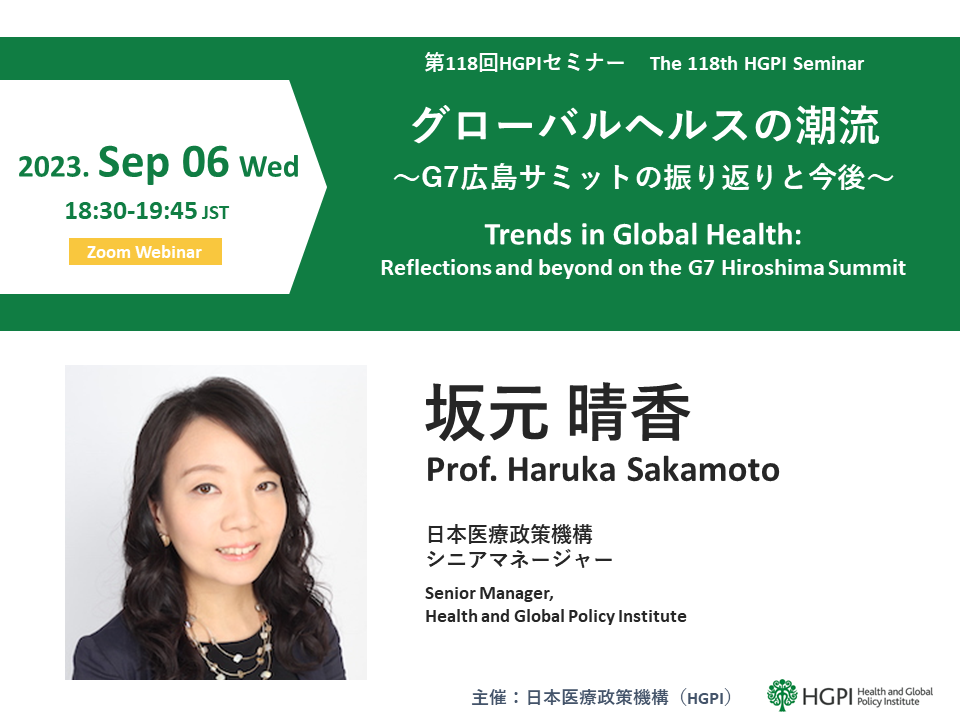
The 118th HGPI Seminar
Trends in Global Health: Reflections and beyond on the G7 Hiroshima Summit
Prof. Haruka Sakamoto, a senior manager at HGPI, spoke about the current state of global health.
2023.09.19
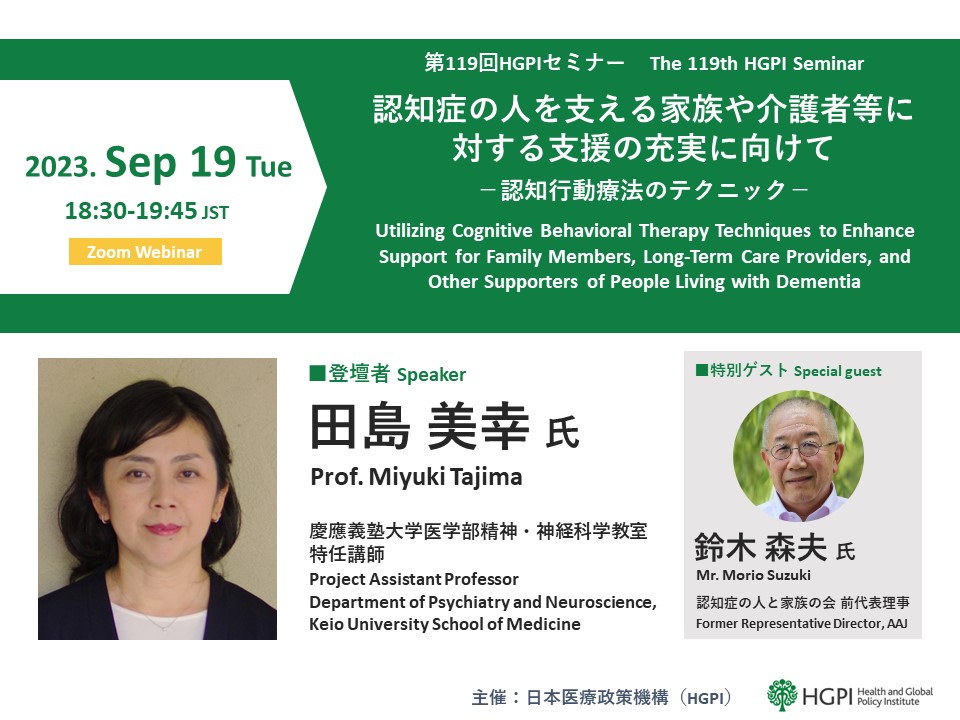
The 119th HGPI Seminar
Utilizing Cognitive Behavioral Therapy Techniques to Enhance Support for Family Members, Long-Term Care Providers, and Other Supporters of People Living with Dementia
We hosted Project Assistant Professor Miyuki Tajima from the Keio University School of Medicine Department of Psychiatry and Neuroscience for a talk on how to best support family members, long-term care providers, and other parties who support people living with dementia using concepts from cognitive behavioral therapy (CBT). To share the perspectives of those who provide support for people living with dementia, this seminar also featured a lecture from special guest Mr. Morio Suzuki, who recently retired from his position of Representative Director of Alzheimer’s Association Japan (AAJ) in June 2023.
Lectures and Media Coverage
HGPI’s projects have been covered by various media outlets both inside and outside of Japan.
2023.07.29-30
The 21st Annual Conference of the Japan Society of Stress Management
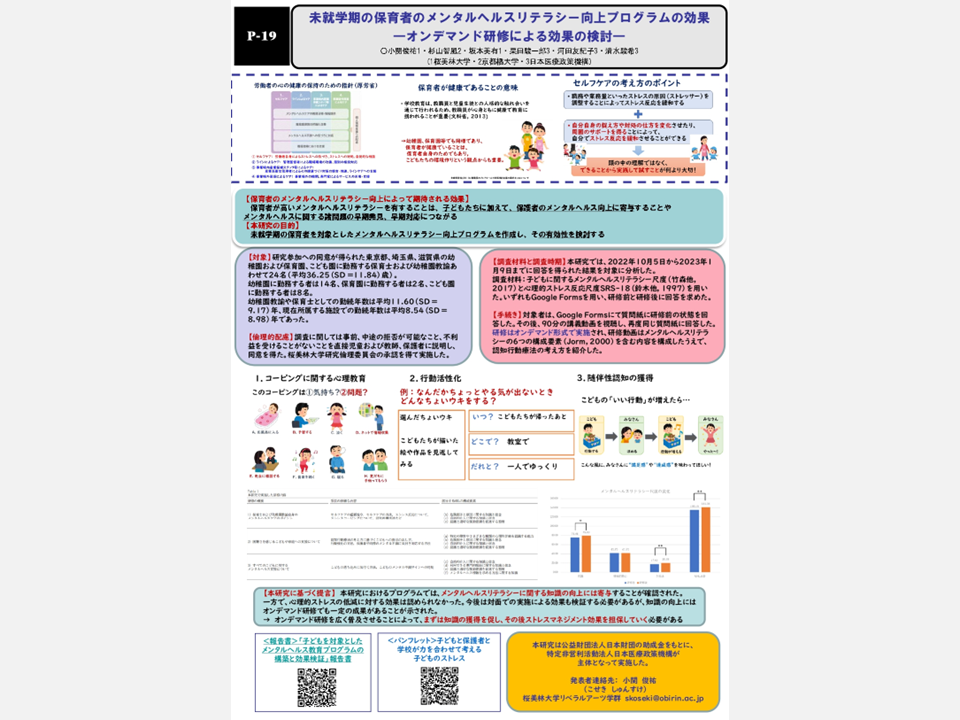
Necessary Steps for Implementing Children’s Mental Health Support in Society
HGPI Senior Manager Mr. Shunichiro Kurita served as planner and moderator at a symposium.
Effectiveness of a Mental Health Literacy Improvement Program for Preschool Child Care Providers: Verifying the Effectiveness of On-Demand Training
Poster Awarded Industrial and Labor Award at 21st Annual Conference of the Japan Society of Stress Management.
2023.07.31-08.01
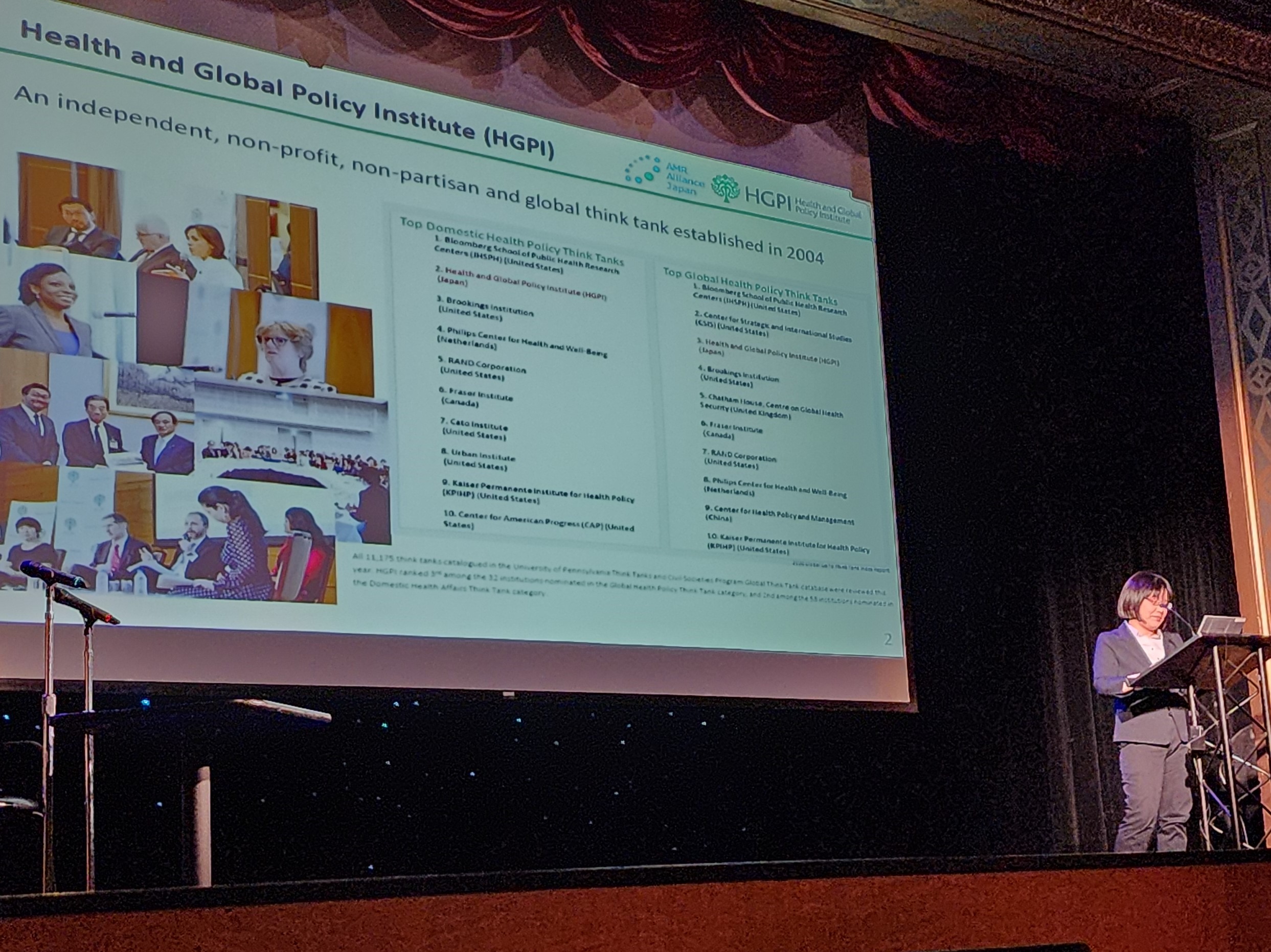
APEC Workshop
Incentives to Bring New Antibiotics to APEC Markets
HGPI Manager Ms. Yui Kohno presented at the APEC Workshop “Incentives to Bring New Antibiotics to APEC Markets” held in Seattle, USA.
2023.07.07
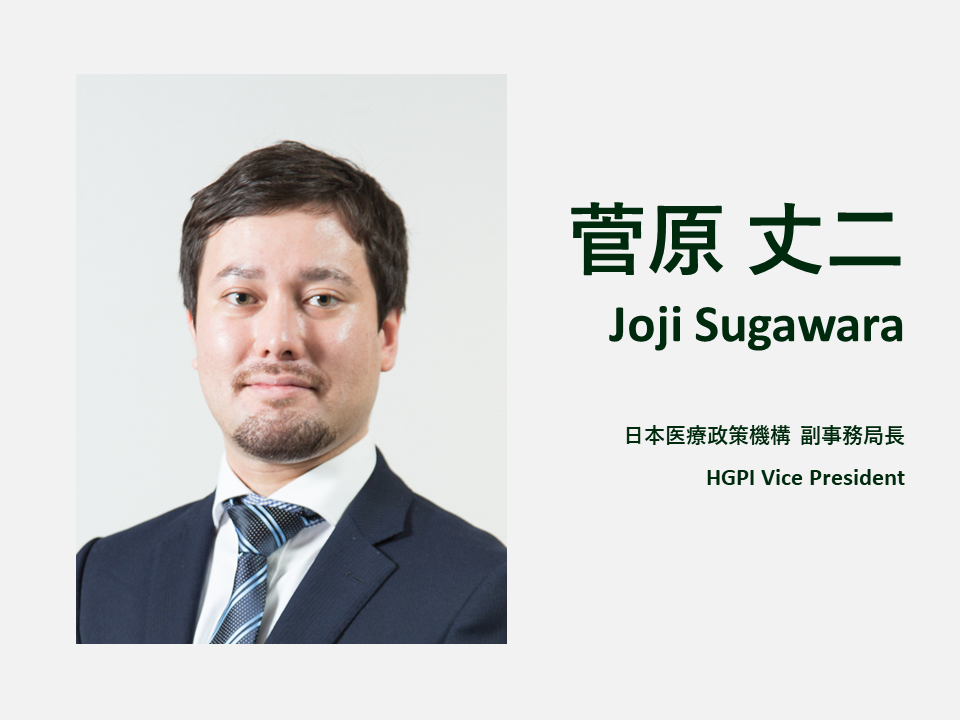
Chuo University Faculty of Policy Studies 30th Anniversary “Lecture Series by Alumni” the sixth lecture
Multi-stakeholder Consensus Building for Health Policy and Its Process
HGPI Vice President Mr. Joji Sugawara gave a lecture.
2023.09.20
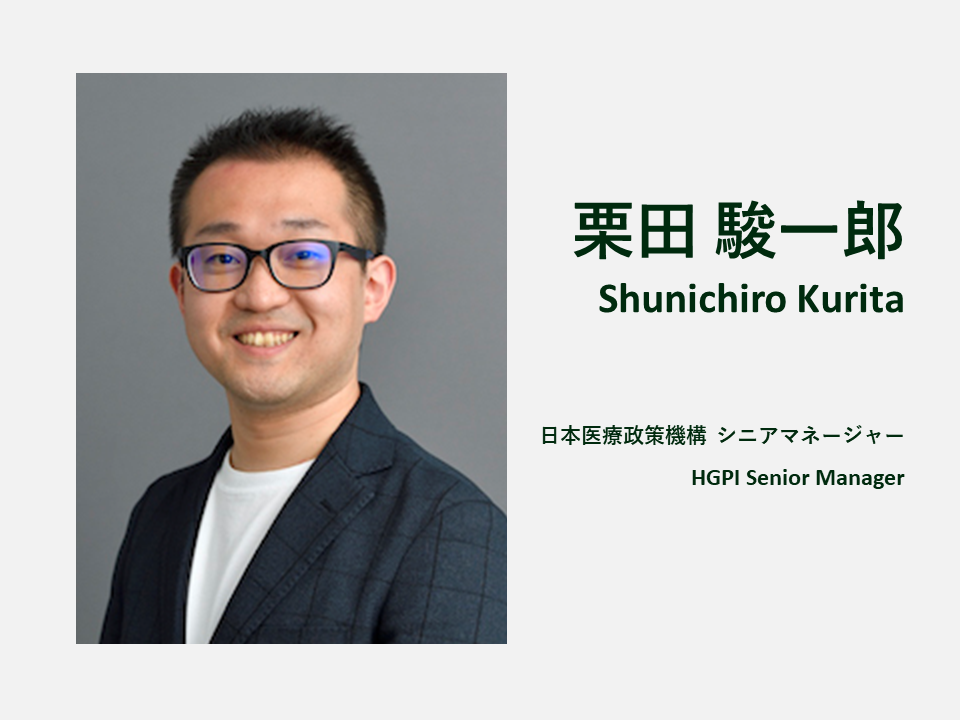
Akita University Faculty of Medicine Social Medicine Workshop
Current Situation of Dementia Policy and the Role of Think Tanks
HGPI Senior Manager Mr. Shunichiro Kurita lectured as a guest lecturer.
Media Coverage
|
BioSpectrum Asia Edition |
|
The Nikkei Personal Opinion and Insight |
|
Japan Medical Association, JMA News |
|
Monthly ROUSHIKYO September Issue |
|
The Nikkei Morning Edition |
Advocacy Activities to Encourage the Adoption of the Recommendations in Our Policy Proposals

HGPI composes and publishes reports and policy proposals for each of its projects. HGPI also makes efforts to encourage the implementation of the recommendations contained in those publications through advocacy activities targeting the government and Diet. Those efforts include providing explanations on the content of each report and proposal to representatives from relevant departments with the local and national government or to Diet members and local assembly members on an individual basis. In addition to cooperating closely with parties relevant to each project from the local and national government, HGPI also functions as a hub that creates links within the community of experts in each field when creating content for Diet member study sessions or when drafting bills. We engage in these cooperative efforts with a shared intent of encouraging the implementation of concrete policies based on our recommendations. In the past, recommendations included in HGPI’s reports and policy proposals have been reflected in policies after having been cited in presentations made by various groups within the government, including nonpartisan Diet member groups and project teams, or in proposals composed by those groups.
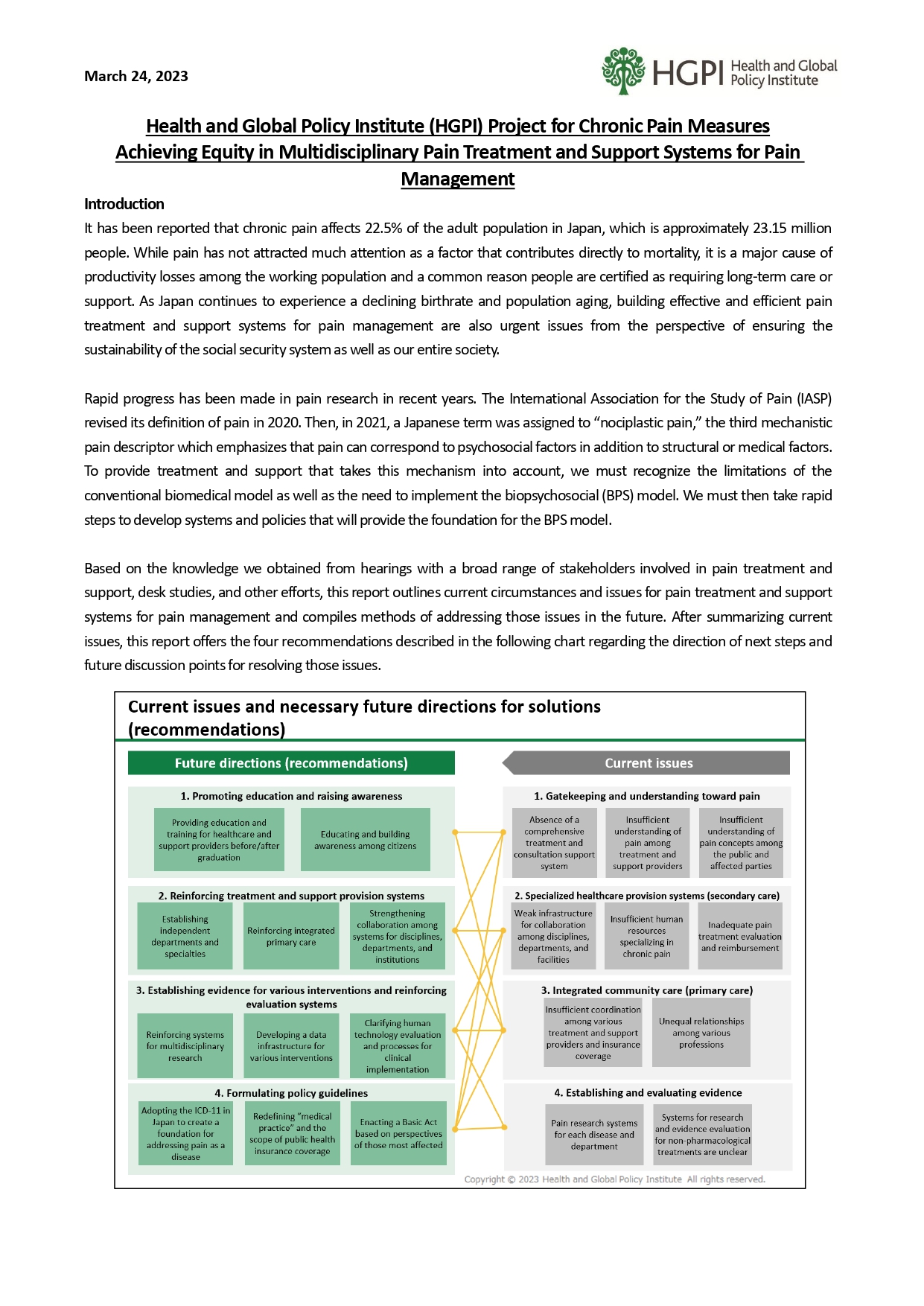
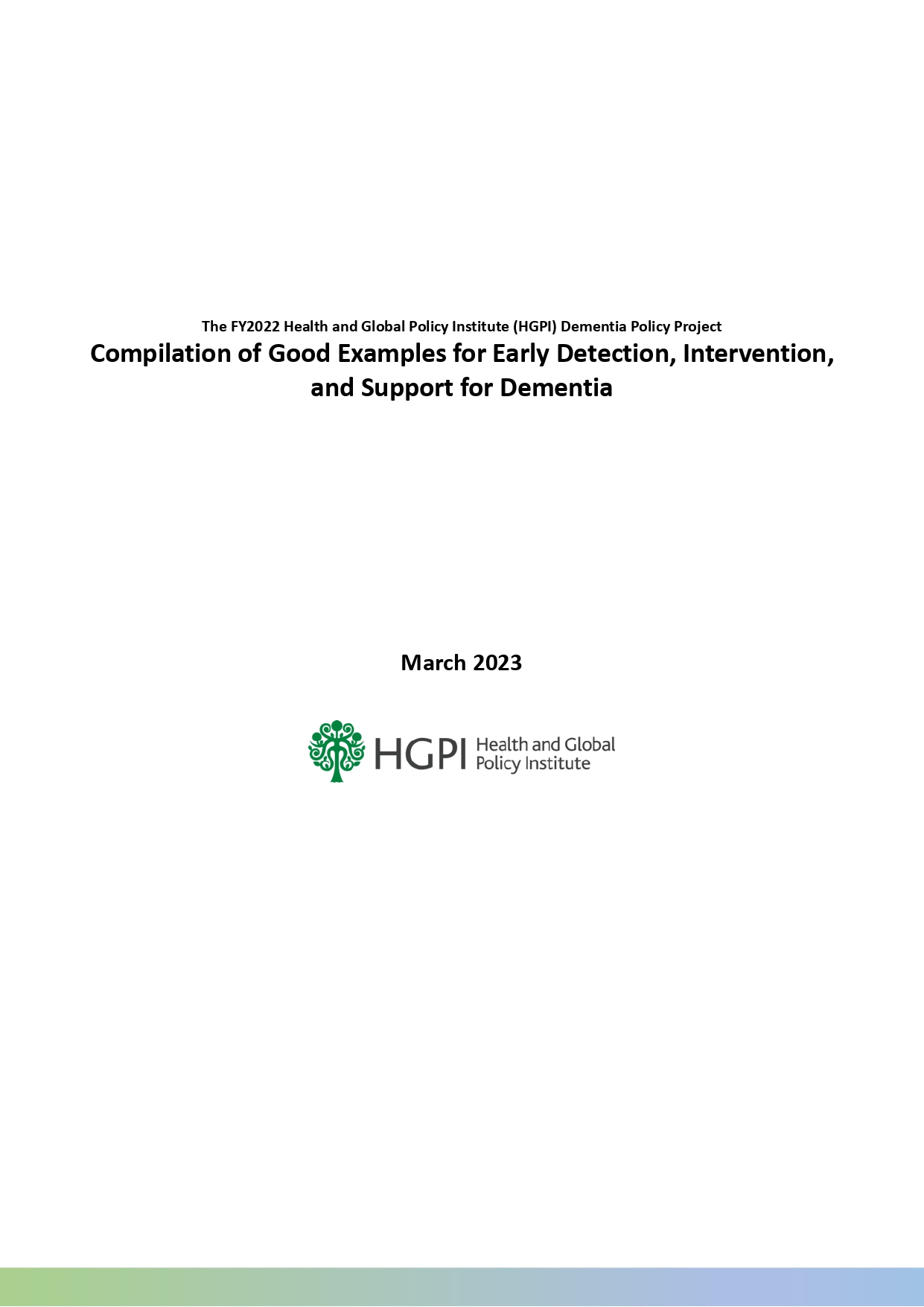
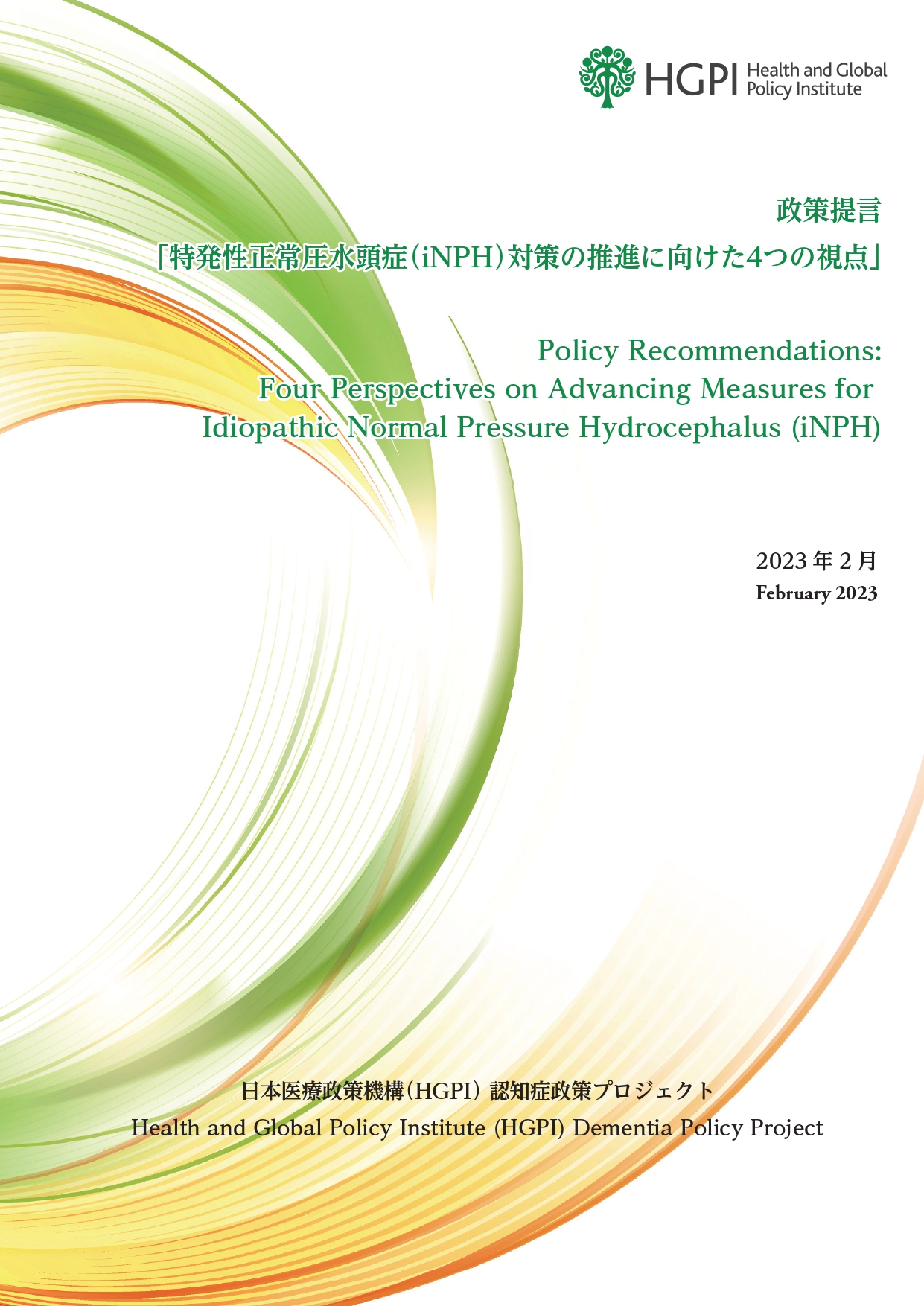
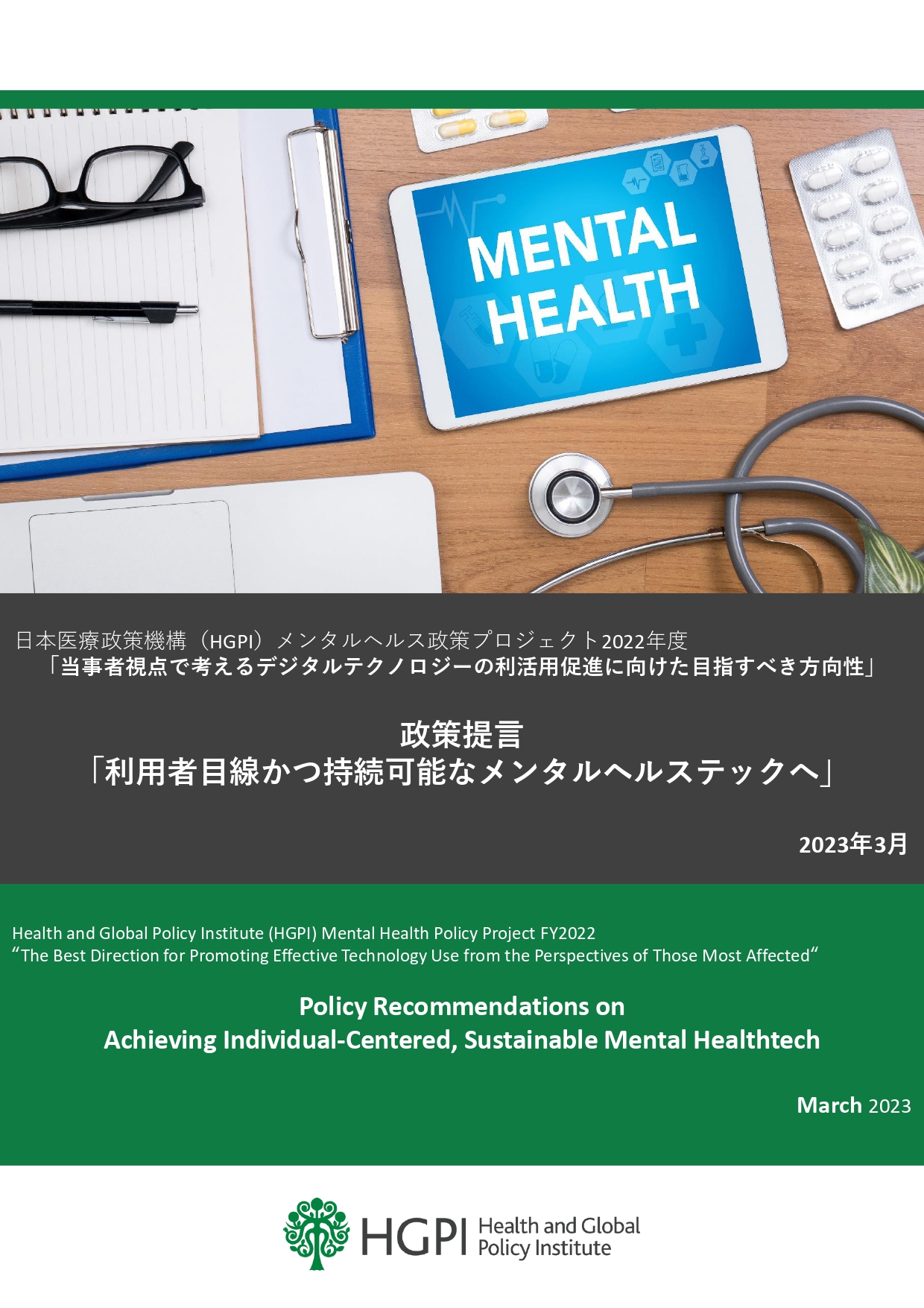

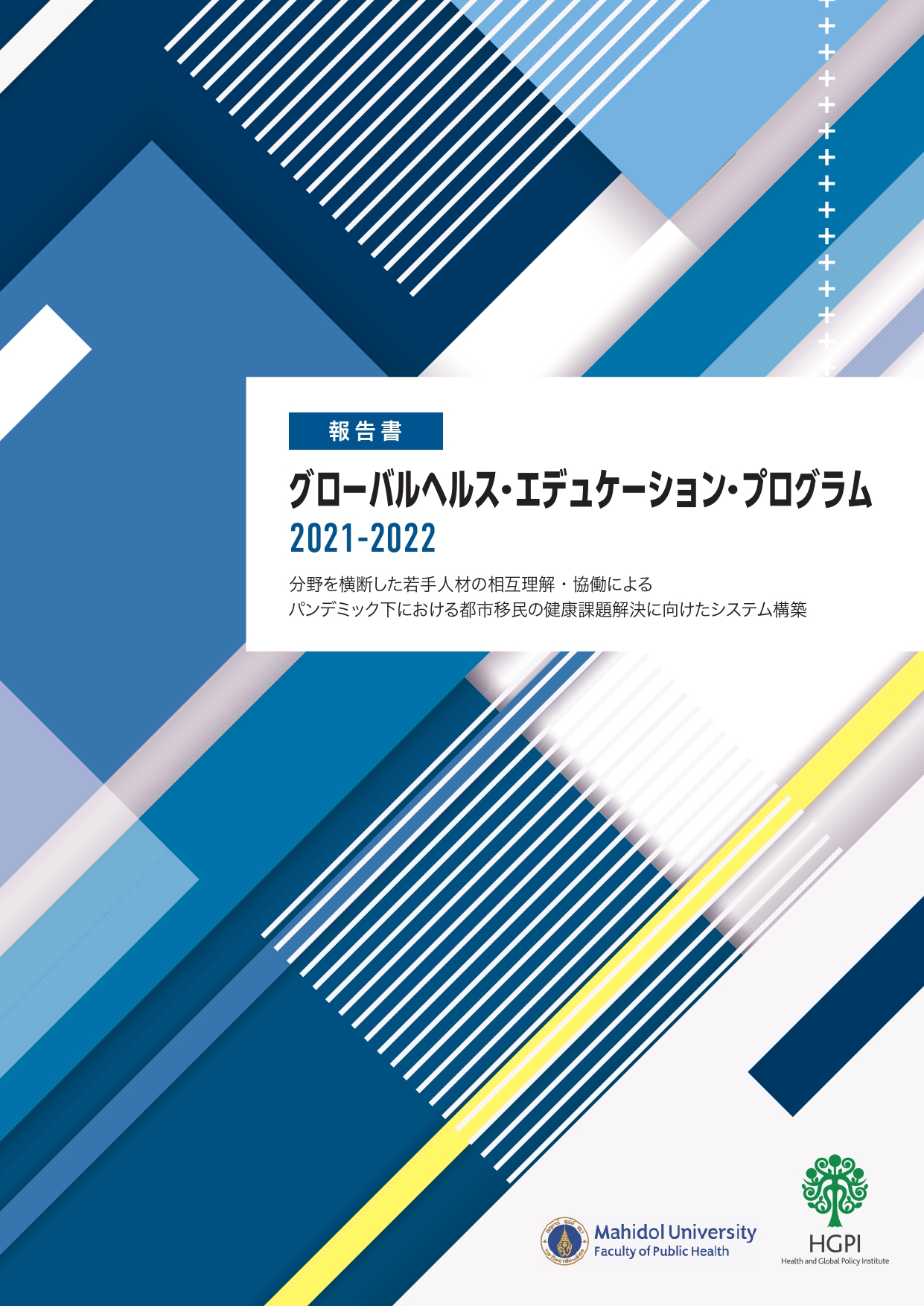
Providing Professional Expertise
Serving on Government Committees and Global Organizations
Senior members of HGPI have held various titles on government committees and in global health societies. Some of those titles are listed below.
- Kiyoshi Kurokawa: Member, World Dementia Council; Healthcare Policy Advisor, Cabinet Secretariat; Chairman, Council on the Future of Tokyo in a Super-Aged Society; Chairman, Cabinet Office’s AI Advisory Board, Special Advisors to the Cabinet, Chairperson, Hideyo Noguchi Africa Prize Committee
- Ryoji Noritake: Committee Member, Council on the Future of Tokyo in a Super-Aged Society
- Kohei Onozaki: Health Policy Advisor, Ministry of Health, Labour and Welfare; Social Security Team, Administrative Reform Conference, Cabinet Secretariat
- Yusuke Tsugawa: Council Member, Advisory Council on Large-scale Demonstration Projects for Prevention and Health Promotion, Ministry of Health, Labour and Welfare, Member, Study Group on the Review of Guidelines for the Appropriate Implementation of Online Medical Care, Ministry of Health, Labour and Welfare
- Ryozo Nagai: Member, Ministry of Health, Labour, and Welfare Social Security Council; Provisional Member, Council for Science and Technology, Ministry of Education, Culture, Sports, Science and Technology; Member, Cabinet Office’s AI Advisory Board
- Satoko Hotta: Member, Caregiver Fee Subcommittee and Welfare Division, Social Security Council, Ministry of Health, Labour and Welfare; Expert Committee Member, Policy Evaluation Council, Ministry of Internal Affairs and Communications
- Shinsuke Muto:Information Policy Advisor, Ministry of Health, Labour and Welfare



